Annual and Sustainability Report
Brim’s Operations in 2022
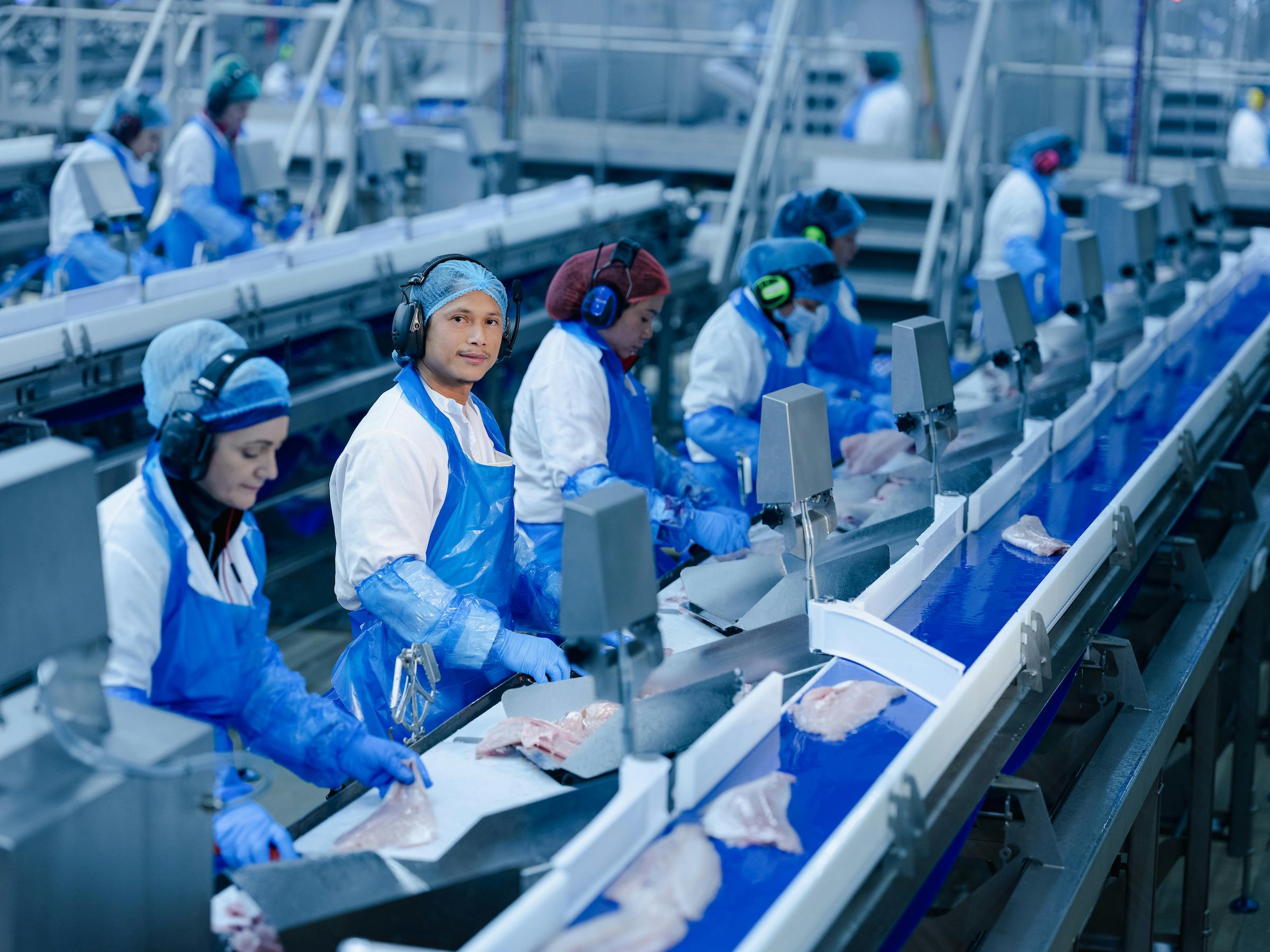
2022 at a Glance
Brim is one of Iceland’s largest fisheries companies and the company’s turnover in 2022 was EUR 451 million. The number of full-time employees of Brim and its subsidiaries was 713 on average, a decrease of 49 from the previous year. Jobs span the entire value chain, i.e. fishing, processing, sales and distribution of the company’s products. Brim operates in Reykjavík, Akranes, Vopnafjörður and Hafnarfjörður, and the company’s headquarters are in Norðurgarður in Reykjavík. An average of nine fishing vessels were in operation during the year. The company is listed in the main market of the Icelandic NASDAQ exchange, and there were 1,856 shareholders at year-end 2022, which is an increase of 610 from the previous year.
- Brim purchased the farm Torfastaðir in Vopnafjörður and has started preparations for forestry for carbon sequestration there. The land is about 900 hectares, and planting is expected to begin in 2023. In addition to carbon sequestration, there is an ongoing conversation with Vopnafjörður municipality about whether part of the forestry area can be used as an outdoor recreation area for residents and visitors to the municipality, as Torfastaðir is centrally located.
- Breið Developmental, which is owned by Brim and Akraneskaupstaður, held an international ideas competition for the zoning of Breið in Akranes, with the goal of development of residential areas, business development and increased innovation.
- Brim, as well as the companies Kerecis and Sidewind, were nominated for the Svifaldan, the motivational award of the Seafood Conference and TM insurance agency, which was awarded at the opening of the Seafood Conference in November.
- Brim, along with other investors, participated in founding the limited company Stika Environmental Solutions, which will work on the development of software solutions for companies’ environmental calculations. The company’s solutions are based on Brim’s environmental management system, which has been in development in recent years.
- Brim completed the issuance of bonds for ISK five billion in collaboration with Íslandsbanki, and they were listed for trading on the main market of Nasdaq Iceland in May. The bonds are the first of their kind in Iceland to fall under the blue and green financing framework. By issuing the bonds, Brim finances projects that promote sustainability, as in recent years, the company has invested systematically in such projects with the aim of reducing the environmental impact of its operations.
- Brim, the Sailors’ Day Committee and Associated Icelandic Ports (Faxaflóahafnir) held grand celebrations on Sailors’ Day after a two-year hiatus due to COVID-19.
- Brim took part in the lighting of the Hamburg tree during Advent with Associated Icelandic Ports, Landsbankinn and Reginn. The tree was located on Miðbakkinn in Reykjavík Harbour.
- The Young People’s Fisheries School was operated in Reykjavík for the third time in the summer of 2022. The programme is a summer school for 14- to 16-year-old primary school students in collaboration with Vinnuskóli Reykjavíkur, Vinnuskóli Kópavogs and Vinnuskóli Seltjarnarness (e. Reykjavik, Kópavogur and Seltjarnarnes municipality vocational schools), companies in the fishing industry and the University of Akureyri.
- Brim presented shares in the company to permanent employees of the company and its subsidiaries for ownership in accordance with their seniority at the company. This amounted to 4.4 million shares.
- The freezer trawler Sólborg RE-27 was purchased with a catch share in capelin, mackerel, greater silver smelt and a share in Iceland’s cod fishing quota in the Barents Sea. The purchase price was EUR 7 million.
- Brim entered into an agreement on the purchase of shares in the Danish company Polar Seafood Denmark A/S (PSD). The total purchase price paid by Brim is DKK 625 m. If all conditions are met, Brim will acquire 50% of the company’s capital. The purpose is to strengthen Brim’s seafood sales network.
- For the past 13 years, Creditinfo has analysed the operations of Icelandic companies and recognised some as Outstanding Companies. Brim has been on the list since 2010 and was in 6th place in 2022.
- The company’s operations were developed in various ways during the year, including the appointment of a Managing Director of Innovation and Climate, a Project Manager of Education and Health and a Director of Fisheries.
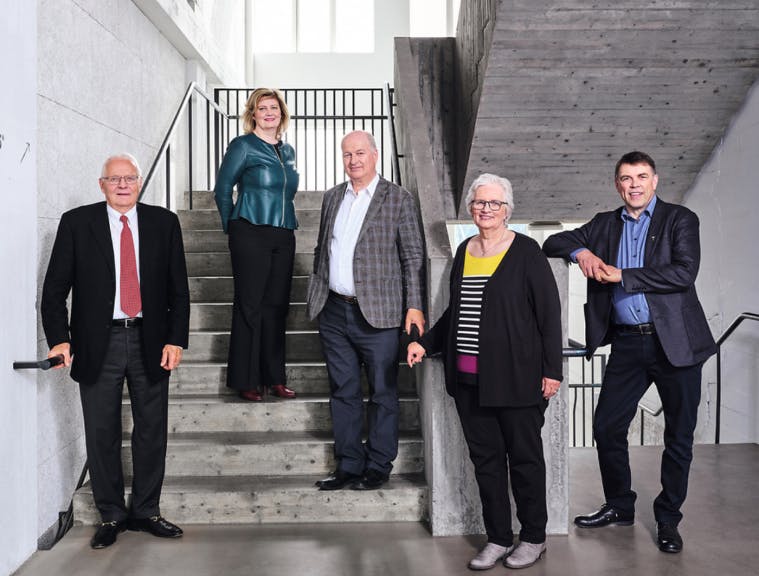
Board of Directors and Corporate Governance
Brim’s Board of Directors consists of five people who are elected at the company’s Annual General Meeting each year.
Brim’s Board of Directors from the 2022 AGM:
- Kristján Þ. Davíðsson, Chairman
- Anna G. Sverrisdóttir, Vice-Chairman
- Hjálmar Kristjánsson
- Kristrún Heimisdóttir
- Magnús Gústafsson
Further information about the Board of Directors can be found on the company’s website, which also includes the company’s articles of association, rules of procedure, governance statement, remuneration policy and other company policies.
Board and Governance
Executive Board
Brims executive board in 2022, was made up of the following members:

Guðmundur Kristjánsson
Chief Executive Officer, CEO
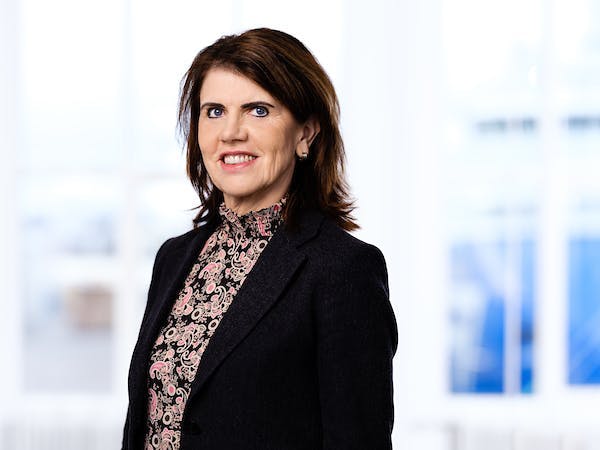
Inga Jóna Friðgeirsdóttir
Chief Financial Officer, CFO
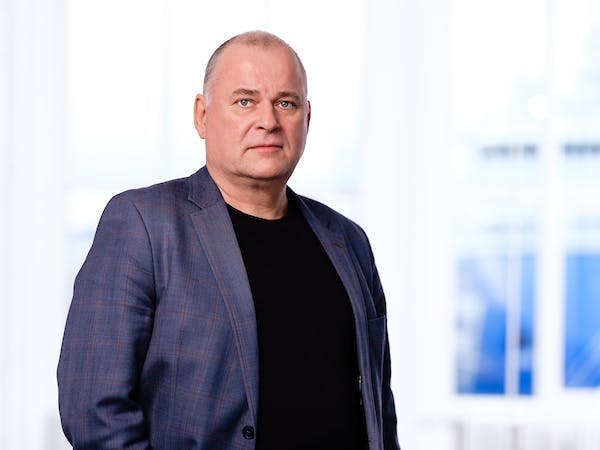
Ægir Páll Friðbertsson
Chief Operation Officer, COO
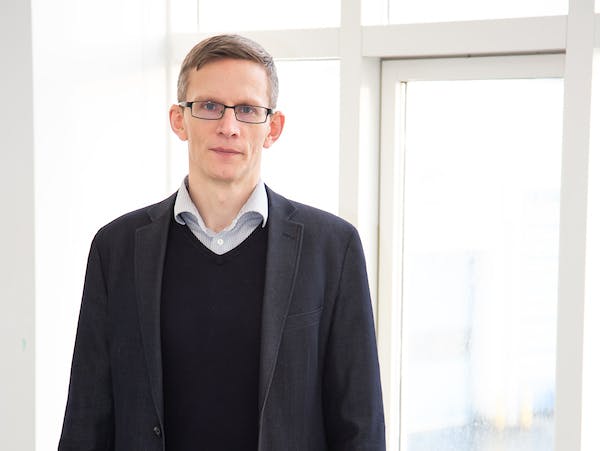
Sveinn Margeirsson
Chief Innovation Officer - CIO
Board and Governance
Shareholders
Registered share capital of Brim hf. was ISK 1,956 million at the end of 2022. At the end of the year, the company owned its own shares with a nominal value of ISK 30.5 million. Outstanding share capital amounted to ISK 1,925.5 million. The number of shareholders at the beginning of the year was 1,246 and 1,856 at year-end. At year-end 2022, four shareholders owned more than 10% of the company: Útgerðarfélag Reykjavíkur hf., which owned 34.45%; Lífeyrissjóður starfsmanna ríkisins A-division, which owned 14.95%; Lífeyrissjóður verslunarmanna, which owned 10.99%; and RE-13 ehf., which owned 10.21%.
The share price was 90.5 at the end of 2022 and 78.0 at the beginning of the year. The actual return on shares during the year, including dividends in the company, turned out to be positive by 8.72%. This is based on shares bought at the closing price of the year 2021 and sold at the end of the year 2022, taking into account the payment of dividends and inflation during the year. In the long run, the actual return on a share which was bought at the end of 2002 and sold at the end of last year averaged 11.62% per year.
Registered trading in Brim hf. shares amounted to ISK 25,840 million in 2022. Registered trading in 2022 amounted to ISK 17,939 million. The nominal increase in the OMX Iceland ICEX-IS index was 26.50% in 2022 and 24.41% taking into account dividends.
| Owner | Shares | % |
|---|---|---|
Útgerðarfélag Reykjavíkur hf. | 663,370,977 | 33.92% |
Lífeyrissjóður starfsmanna ríkisins A-deild | 287,905,000 | 14.72% |
Lífeyrssjóður verslunarmanna | 211,680,503 | 10.82% |
RE-13 ehf. | 196,500,000 | 10.05% |
KG Fiskverkun ehf. | 78,024,576 | 3.46% |
Lífeyrissjóður starfsmanna ríkisins B-deild | 67,595,000 | 3.46% |
Birta lífeyrissjóður | 50,240,479 | 2.57% |
Stekkjarsalir ehf. | 36,500,000 | 1.87% |
Söfnunarsjóður lífeyrisréttinda | 31,019,188 | 1.59% |
Brim hf. | 30,532,917 | 1.56% |
Board and Governance
The Group
Brim’s policy is to be an integrated fisheries company involved in vessel operation, processing and sales and marketing operations, in addition to supporting innovation in the fisheries industry. Brim’s subsidiaries and affiliates, domestically and abroad, are important factors in the company’s operations and support its policy.
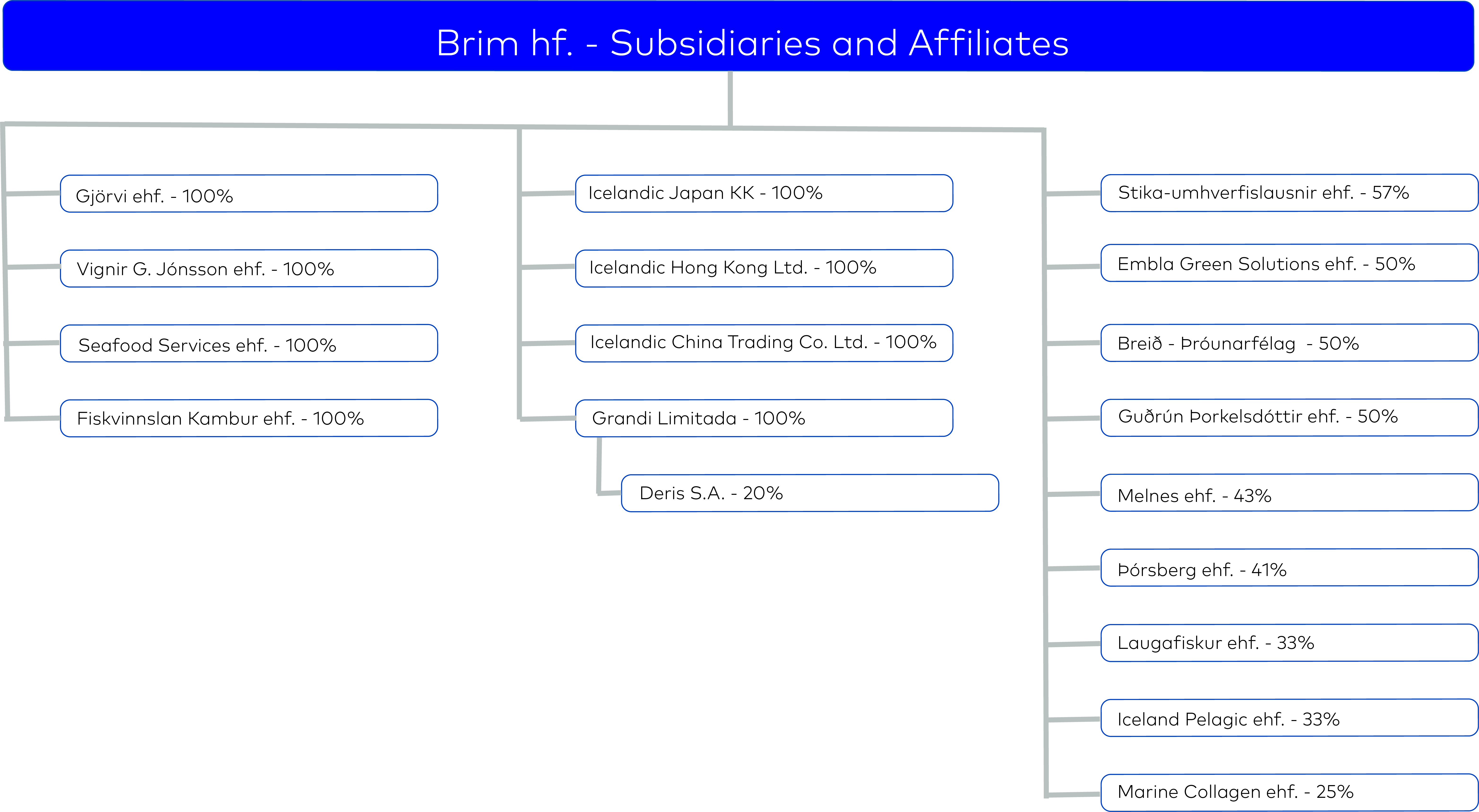
Subsidiaries
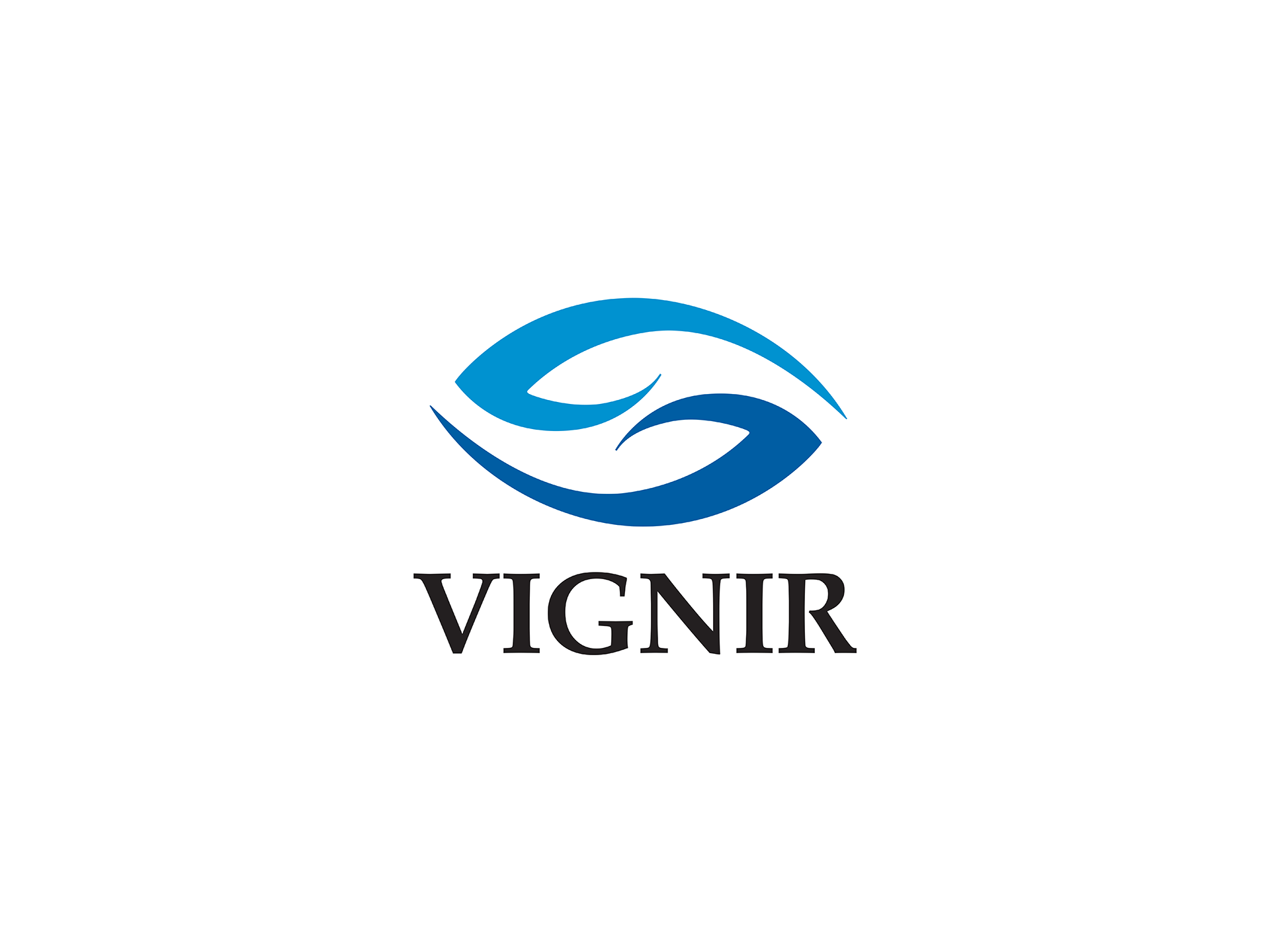
Vignir G. Jónsson ehf.
Vignir G. Jónsson specialises in the final processing of roe and is one of the largest single buyers of lumpfish roe and cod roe in Iceland.
Operating revenue during the year was EUR 15.6 million. Profit from operations amounted to EUR 2.3 million. Total assets at the end of the year amounted to EUR 20.2 million, while equity was EUR 14.0 million, or 69%.
Brim owns a 100% share in Vignir G. Jónsson ehf., and the book value of the holding amounted to EUR 19.8 million at the end of 2022.
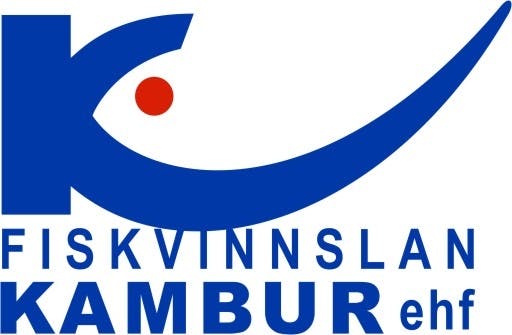
Fiskvinnslan Kambur ehf.
Fiskvinnslan Kambur ehf. operates a fish processing plant in Hafnarfjörður. The company’s subsidiaries are Grunnur ehf. and Stapavík hf.
Operating revenue during the year was EUR 21.9 million. Profit from operations amounted to EUR 0.7 million. Total assets at the end of the year amounted to EUR 27.0 million, while equity was EUR 5.0 million, or 19%.
Brim owns a 100% share in Fiskvinnslan Kambur ehf., and the book value of the holding amounted to EUR 18.3 million.
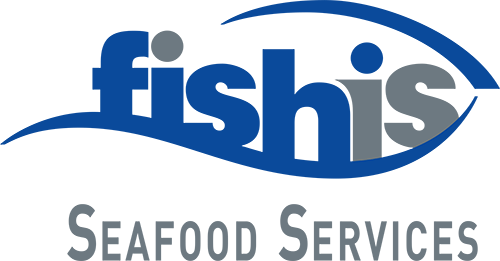
Seafood Services ehf.
Seafood Services ehf. is a service company that specialises in various services to the fishing industry.
Operating revenue during the year was EUR 4.6 million. Profit from the operation was EUR 0.2 million. Total assets at the end of the year amounted to EUR 1.7 million, while equity was EUR 1.2 million, or 73%.
Brim owns a 100% share in Seafood Services ehf., and the book value of the holding amounted to EUR 1.9 million.
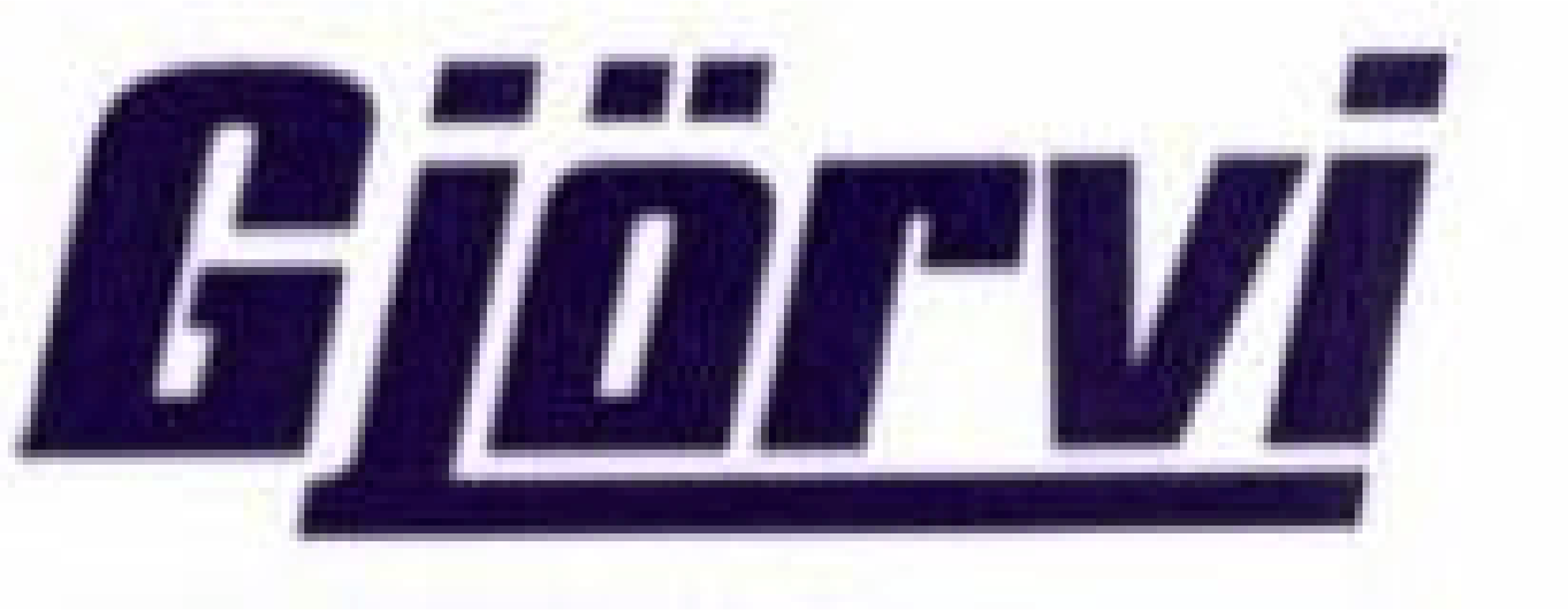
Gjörvi ehf.
Gjörvi ehf. specialises in comprehensive maintenance services for vessels and machinery and construction work, as well as related services, for both domestic and foreign parties.
Operating revenue during the year was EUR 1.4 million. Loss from operations amounted to EUR 0.1 million. Total assets at the end of the year amounted to EUR 0.2 million, while equity was a negative EUR 0.4 million.
Brim owns a 100% share in Gjörvi ehf., and the book value of the holding amounted to a negative EUR 0.3 million.
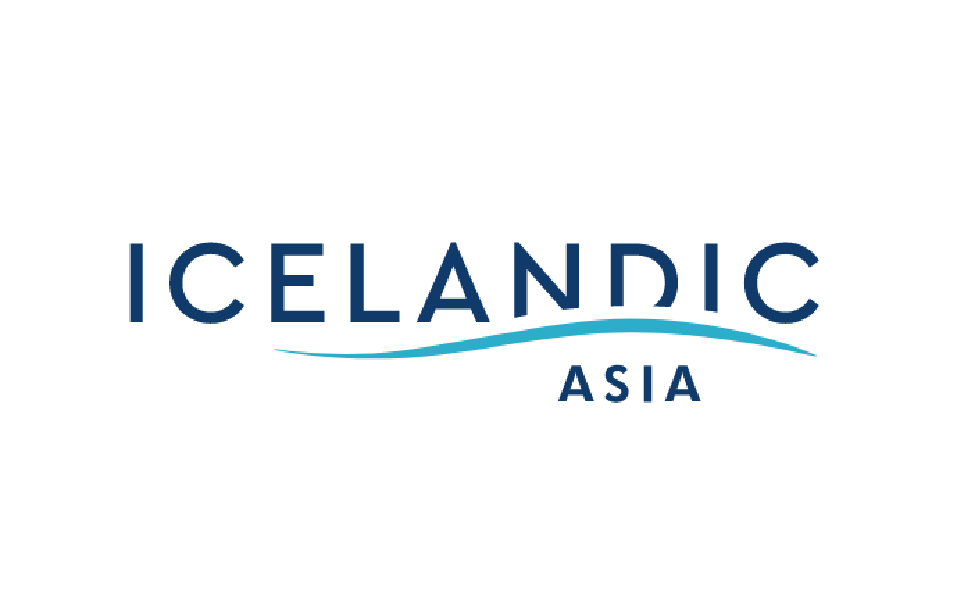
Sales Companies in Asia
Brim owns all shares in three sales companies in Asia: Icelandic Japan KK, Icelandic China Trading Co. Ltd. and Icelandic Hong Kong Ltd.
The companies’ combined operating income during the year amounted to EUR 163.8 million. Profit from operations amounted to EUR 4.1 million. Total assets at the end of the year amounted to EUR 47.6 million, while equity was EUR 19.9 million.
Brim owns a 100% share in the companies, and the book value of the holdings amounted to EUR 33.1 million.
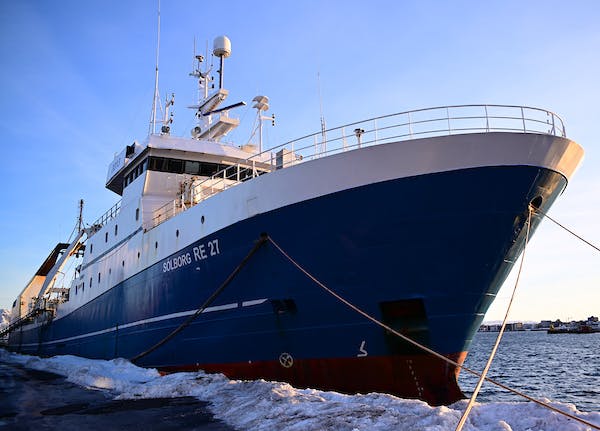
Sólborg ehf.
During the year, Brim acquired all the shares in Sólborg ehf., which owns the freezer trawler Sólborg RE-27.
During the period, there was a loss from the operation in the amount of EUR 0.9 million. Total assets at the end of the year amounted to EUR 88.7 million, while equity was EUR 6.2 million, or 7%.
Brim owns a 100% share in Sólborg ehf., and the book value of the holding amounted to EUR 6.2 million.
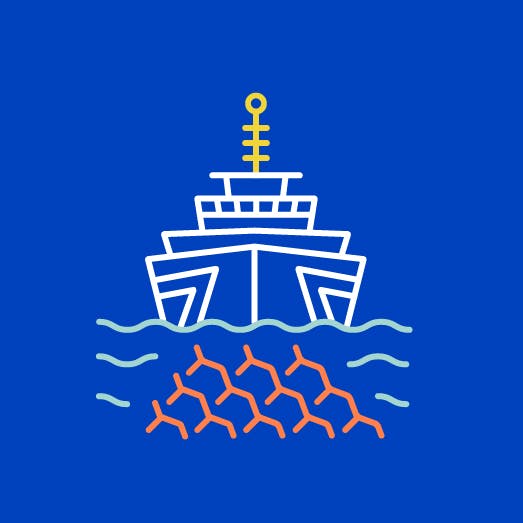
Grandi Limitada
Grandi Limitada is a holding company in Chile that owns a 20% share in Deris S.A.
Associated Companies
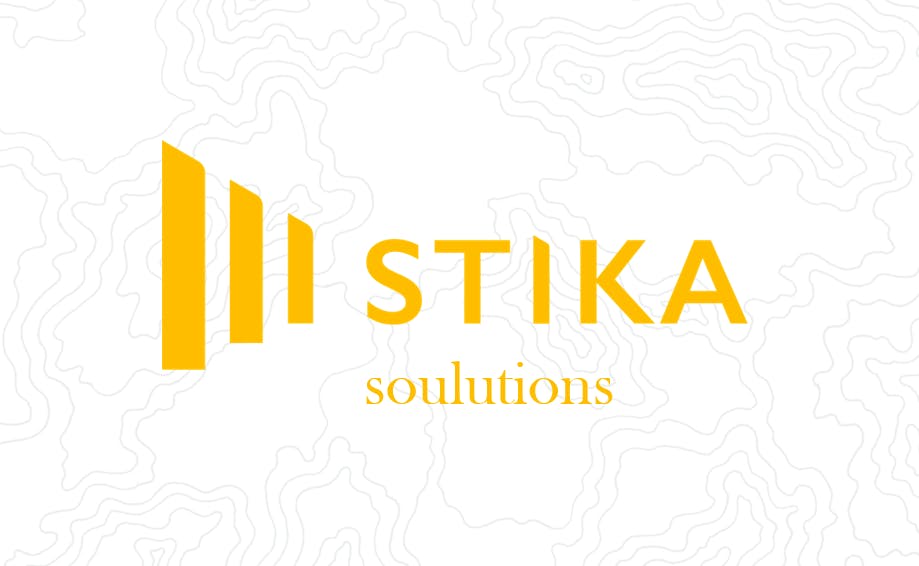
Stika-Environmental System ehf.
Brim owns a 57% share in Stika-umhverfislausnir ehf., which develops software for corporate environmental accounting.
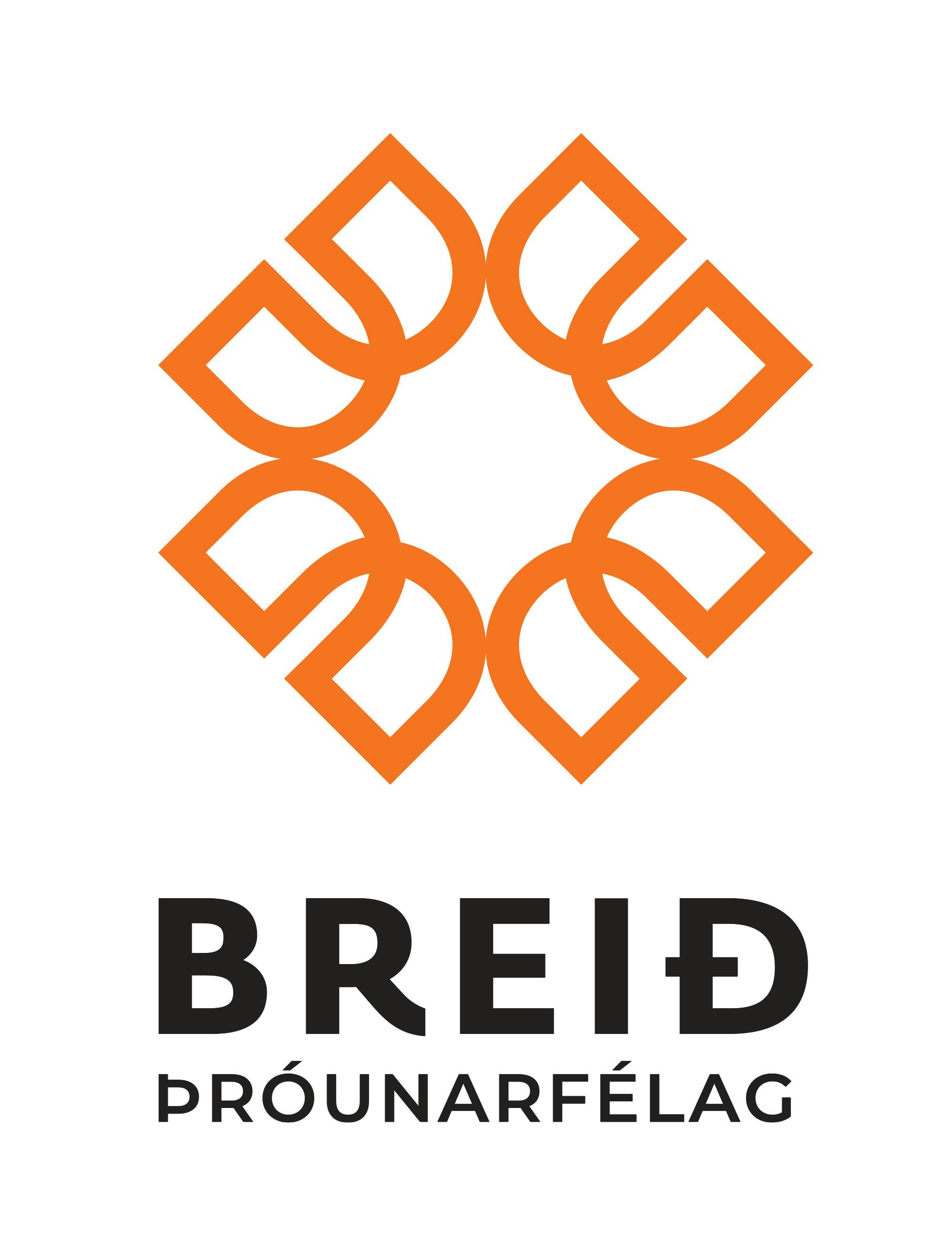
Breið Developmental
Brim owns 50% in Breið Developmental against Akranes municipality. Breið Developmental’s goal is to promote the development of Breiðin in Akranes, with an emphasis on the development of residential housing, increased job opportunities, innovation and creative industries in the area.

Embla Green Solutions ehf.
Brim owns a 50% share in Embla Green Solutions ehf., which has specialised in creating real-time environmental management software solutions along with waste weighing solutions. The company’s solutions are designed in collaboration with Brim and are integrated technologies that make it easier for companies and municipalities to assess the environmental impact of waste and waste management.
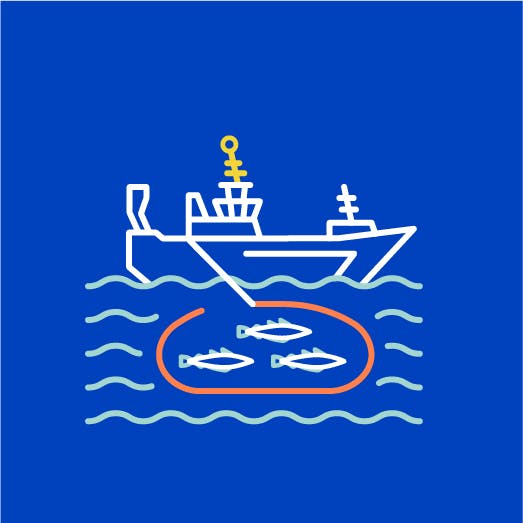
Guðrún Þorkelsdóttir ehf.
Brim owns a 50% share in the fisheries company Guðrún Þorkelsdóttir ehf. The company operates the pelagic vessel Guðrún Þorkelsdóttir SU. The company’s effect on Brim’s operations was positive by EUR 0.02m. The book value of Brim’s holding was EUR 0.02m.
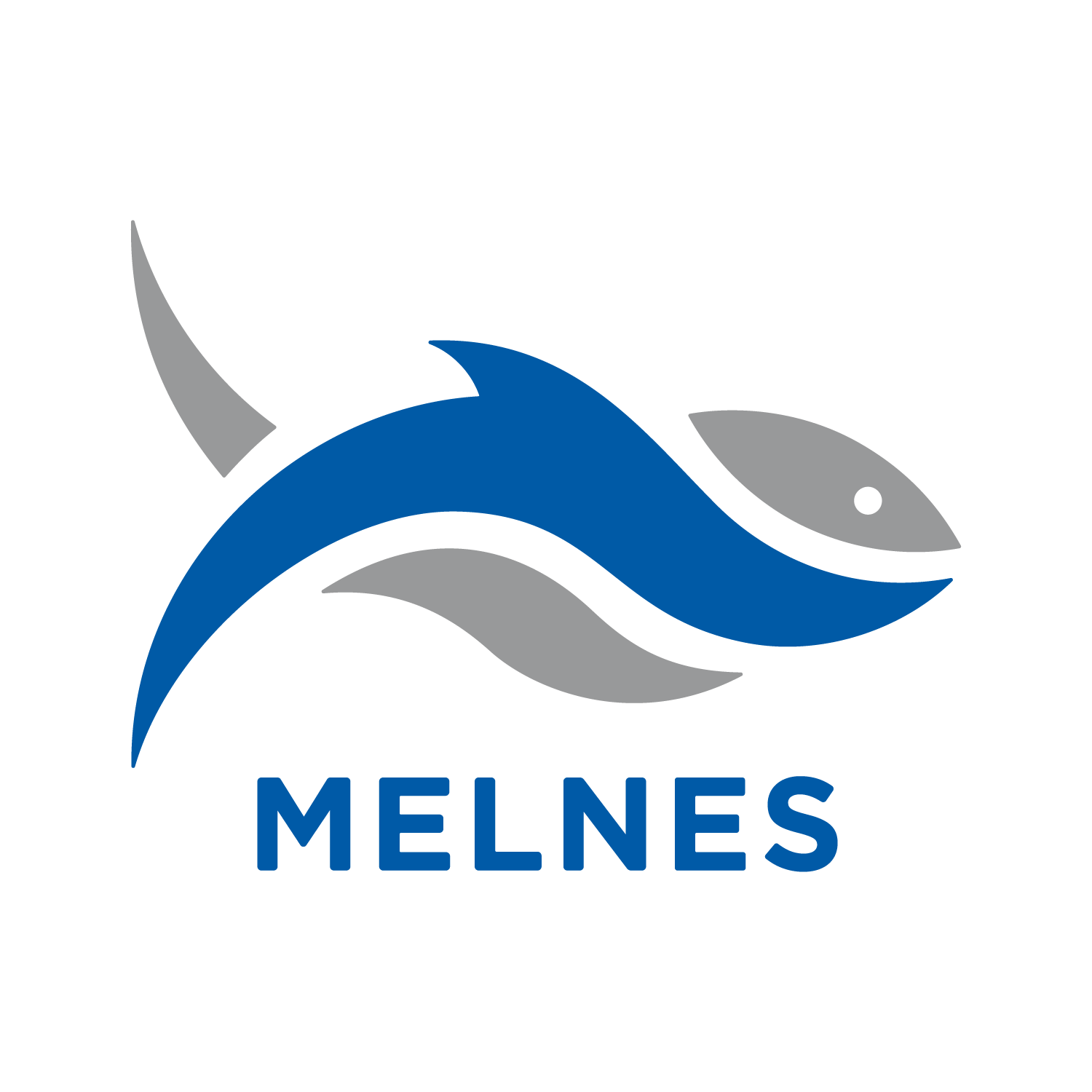
Melnes ehf.
Brim owns a 43% share in Melnes ehf., which is a fisheries company in Rif that operates, i.a. the hook-and-line boat Særif SH-25.
The company’s impact on Brim’s operations was positive by EUR 0.3m. The book value of Brim’s holding was EUR 6.7m at the end of 2022.
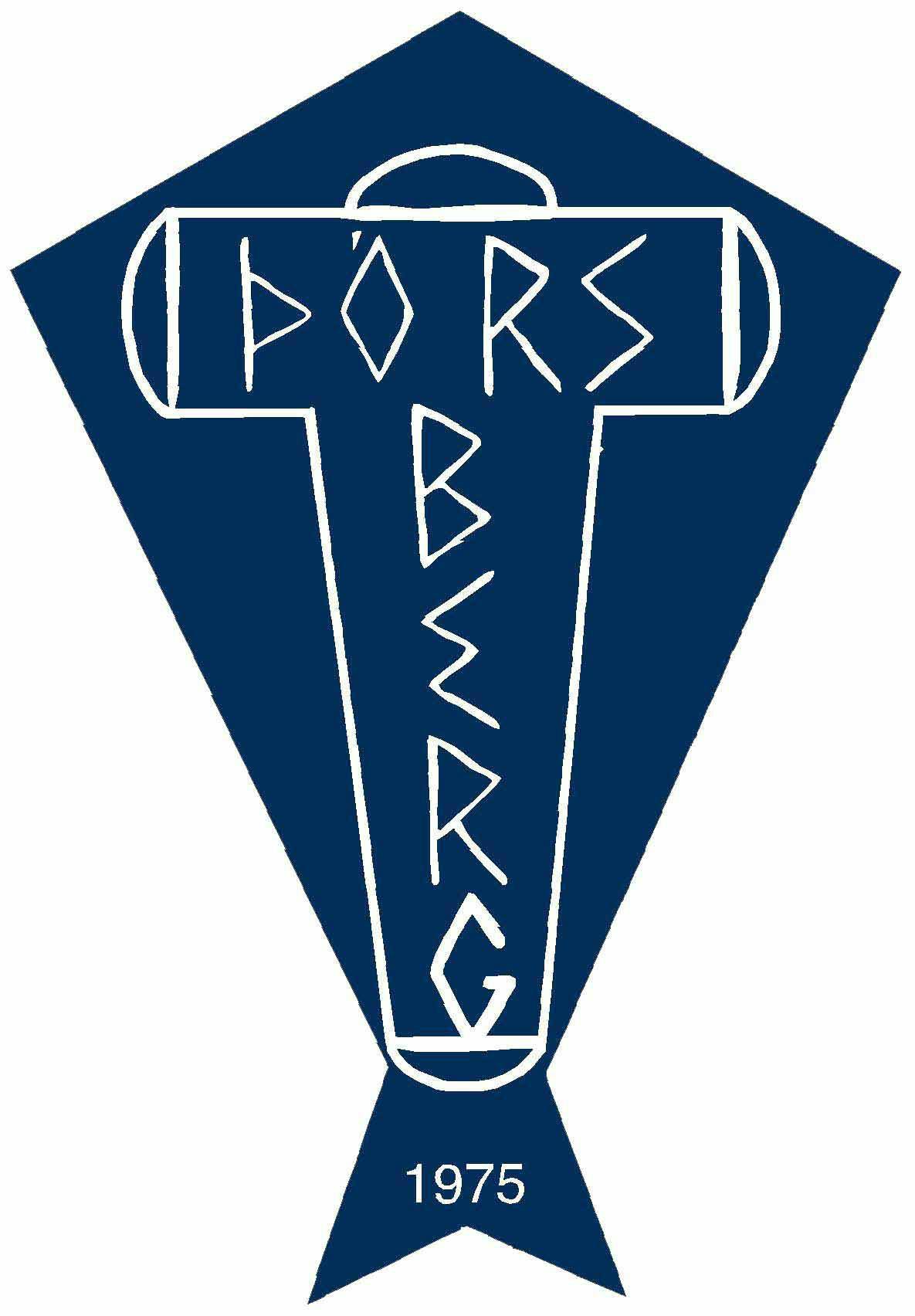
Þórsberg ehf.
Brim owns a 41% share in Þórsberg ehf., which is a fisheries company in Tálknafjörður that operates, i.a. the hook-and-line boat Indriði Kristins BA.
The company’s effect on Brim’s operations was positive by EUR 0.3m. The book value of Brim’s holding was EUR 8.7m at year-end 2022.
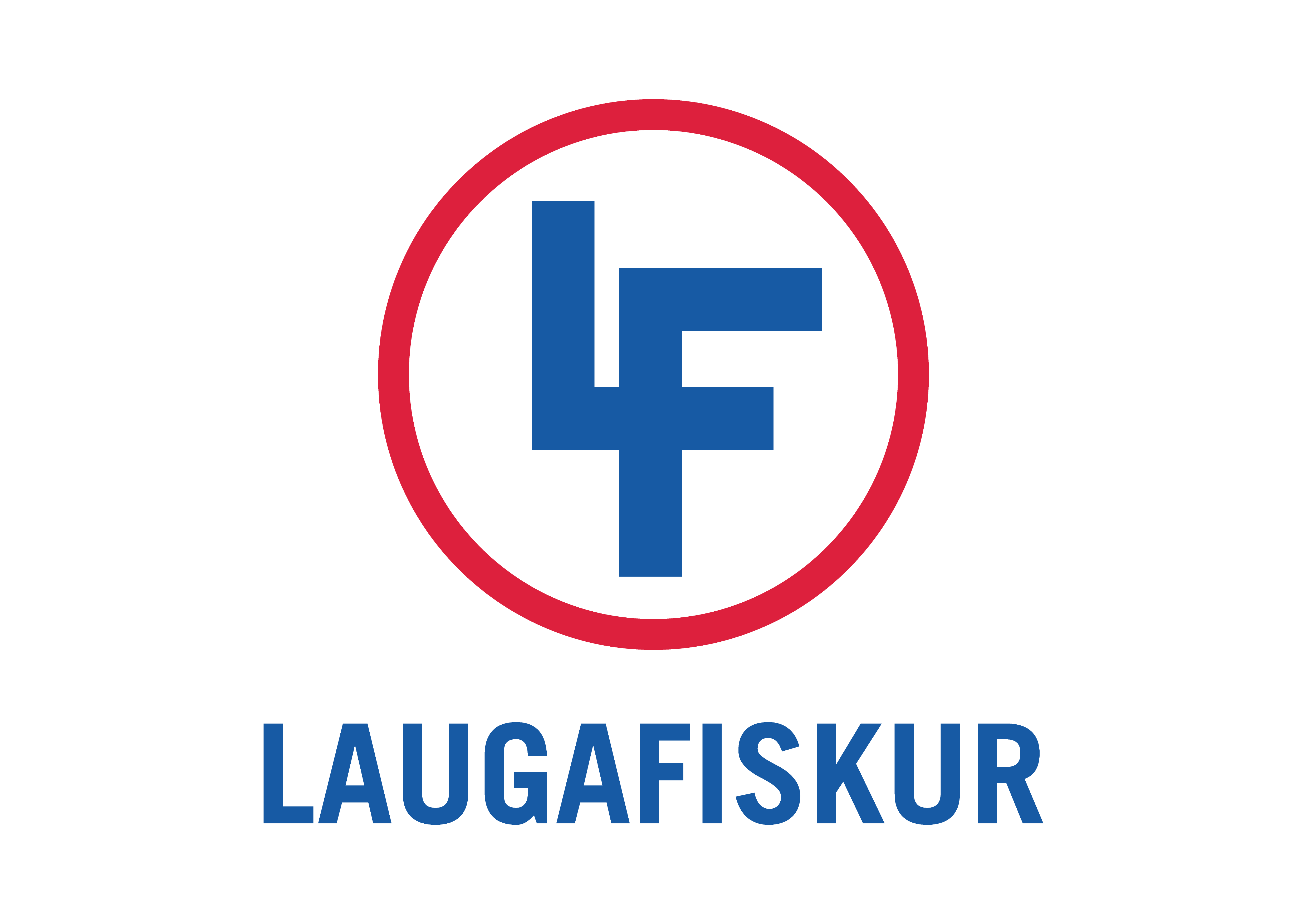
Laugafiskur ehf.
Laugafiskur ehf. operates a fish drying plant in Reykjanes. Brim owns a 33.3% share in the company against Skinney Þinganes hf. and Nesfiskur ehf.
The company’s effect on Brim’s operations was positive by EUR 0.7m. The book value of Brim’s holding was EUR 4.6m at year-end 2022.
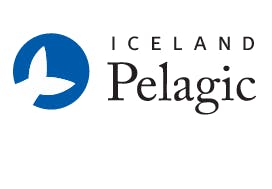
Icelandic Pelagic ehf.
Brim owns a 33% share in Iceland Pelagic ehf. The company specialises in the sale and distribution of frozen seafood products. Other shareholders are Ísfélag Vestmannaeyja hf. and Skinney-Þinganes hf.
The company’s effect on Brim’s operations was positive by EUR 0.4m. The book value of Brim’s holding was EUR 2.7m at year-end 2022.

Marine Collagen ehf.
Brim owns a stake in Marine Collagen, which aims to produce gelatin and collagen from 4,000 tonnes of fish skin from Icelandic groundfish per year.
The company’s effect on Brim’s operations was negative by EUR 0.1m. The book value of Brim’s holding was EUR 0.7m at year-end 2022. Other shareholders are Samherji hf., Vísir hf. and Þorbjörn hf., with a 25% share in the company each.

Deris S.A.
Brim owns a 20% share in the holding company Deris S.A. in Chile. Deris owns the fisheries companies Friosur and Pesca Chile. The companies operate two freezer trawlers, two longliners that freeze the catch, three wetfish trawlers and one vessel for krill fishing. In addition, it operates one fish processing plant.
Profits from Deris operations amounted to EUR 0.4m in 2022. The company’s effect on Brim’s operations was positive by EUR 0.6m. The book value of Brim’s holding was EUR 26.5m at year-end 2022.
Board and Governance
Transactions of Related Parties
Brim’s operations are subject to the rules on transfer pricing, which refer to how related legal entities price transactions between themselves. The rules are intended to ensure that the price determination in transactions between related legal entities is in accordance with prices in comparable transactions between unrelated parties, so that the pricing is in accordance with the so-called arm’s-length rule. The rules only apply when there are certain connections between legal entities that conduct business.
Connection exists when there is a direct and/or indirect connection between the legal entities themselves or when there is a connection between persons who are the majority owners of the legal entities or have administrative control over the legal entities that conduct business. The relationship between the legal entities themselves can be defined directly or indirectly as follows:
- When legal entities are part of the same group, they are unequivocally related legal entities.
- When a legal entity is under the direct and/or indirect majority ownership or administrative control of two or more legal entities within a group, it is considered to be related to all legal entities within the group.
- When a legal entity owns more than 50% in another legal entity indirectly, they are considered related within the meaning of the provision of the Act on Transfer Pricing. If one legal entity is part of a group, the other legal entity is considered to be related to all other legal entities within the group.
Brim sold products to the following related parties in 2022:
- Icelandic Japan, sales of products EUR 29.6 million.
- Vignir G. Jónsson, sales of roe EUR 9.6 million.
- Fiskvinnslan Kambur, sales of groundfish for processing EUR 1.7 million.
- Iceland Pelagic, sales of seafood products EUR 33.5 million.
- Laugarfiskur, sales of heads EUR 1.6 million.
Brim also bought products from related parties in 2022:
- Fiskvinnslan Kambur, purchase of products EUR 2.2 million:
- Gjörvi vessel services, EUR 1.4 million.
- Seafood Services, EUR 0.2 million.
- Brim bought the company Sólborg ehf. from Útgerðarfélag Reykjavíkur ehf., the purchase price was EUR 7.0 million.
Brim’s other transactions with related parties are insignificant.
Other transactions between related parties:
- Útgerðarfélag Reykjavíkur and its subsidiary sold Icelandic Japan products for EUR 36.0 million.
- Seafood Services, which handles product quality control, sold services to Icelandic Japan for EUR 0.8 million and to Icelandic China for EUR 2.8 million.
- Fiskvinnslan Kambur sold Laugafiskur heads for EUR 0.7 million.
- Icelandic Japan sold Icelandic China products for EUR 0.5 million.
- Icelandic Hong Kong sold Icelandic China products for EUR 2.8 million.
Other transactions between related parties are insignificant.
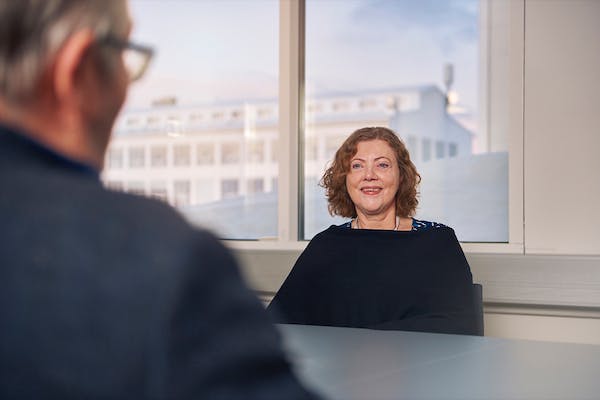

Social
Human Resources
There were 713 full-time employee positions (FTEs) at Brim and its subsidiaries in 2022, and employee turnover was 4.96% for permanent employees for the year 2022. Brim has employees from over 26 countries. The company’s strength lies in its dynamic team both at sea and on land, and Brim’s Board decided to hand over shares in Brim to permanent employees of the company and its subsidiaries according to seniority. This was to thank the staff for their contribution to the company, especially for the last two years during the COVID-19 pandemic and the unique challenges the company faced then. In times like these, the importance of employees in the welfare and success of the company for the future can’t be emphasised enough. Employees play a major role in the company’s success, and Brim emphasises that the company recruits people with excellent qualifications and that the company invests purposefully in the education and training of staff.
The number of women working at the company increased by 4% between the years 2021 and 2022, and the ratio is now 29% women and 71% men. The number of women among fishermen and industrial workers is slowly increasing, but the biggest difference between the genders is there. However, the company will not be deterred and will continue to encourage all genders to apply for jobs with the company.
A social audit was made at the fish processing plant in Norðurgarður in 2022. This was a so-called SMETA audit (Sedex Members Ethical Trade Audit), which is an audit by an independent third party, which examines the working environment of employees and how their basic rights are being protected. Thus, the audit relates to the arrangement of personnel matters, occupational health and safety, work environment and business ethics according to SEDEX standards.
Brim, along with other Icelandic fishing companies, participates in the pilot project FISH Standard for Crew that Ábyrgar fiskveiðar ses. manages on behalf of Fisheries Iceland (SFS) and the National Association of Small Boat Owners. The FISH standard is based on the ILO Fishermen’s Convention 188, which is the only international convention that covers the working conditions of fishermen worldwide. The project concerns the implementation of a social audit of the working conditions of fishermen on fishing vessels based on the FISH Standard for Crew, and it is estimated that the results of the preliminary audit will be available in 2023.
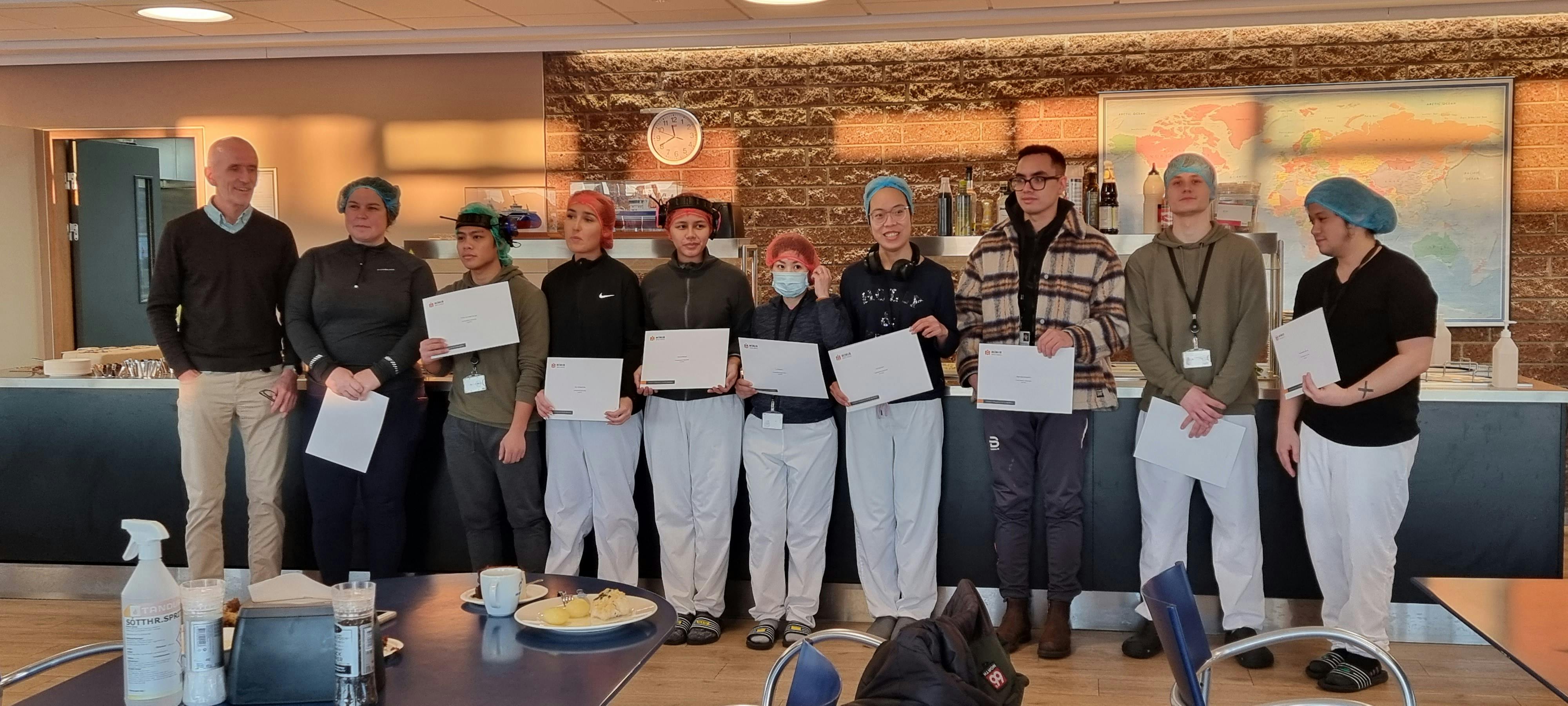
Social
Education
Brim emphasises providing practical training that empowers employees and increases personal skills and knowledge. The Brim school was launched in autumn 2022 and is intended to be the core of professional development and at the same time a tool for staff to seek knowledge in an organised manner. The school’s first steps were taken in collaboration with the Icelandic College of Fisheries. A co-operation agreement was signed between Brim and the Icelandic College of Fisheries in November 2022. The aim of the collaboration is to promote the education of young people and any kind of lifelong learning and training of employees in the Icelandic fishing industry. The studies are based on diverse teaching methods, and local as well as online training is offered. An Icelandic electronic education system, LearnCove, was put into use and offers central access to training materials, a collaborative platform, adaptation to diverse needs, job- and role-oriented training and multicultural support for learning.
The company places great emphasis on Icelandic language courses for foreign staff, and Mímir símentunun and Brim have long collaborated on courses in Icelandic. Emphasis is placed on employees receiving good training in Icelandic to facilitate communication in the workplace and strengthen their participation in society.
The basic course for fish processing staff is a 48-hour course that is held every other year. The aim of the course is to increase employees’ knowledge of fish processing, increase self-confidence and strengthen the professional skills of those who attend the course.
Continuing education regarding occupational safety is an important part of Brim’s activities, as it is necessary to be able to react correctly in an emergency. This continuing education includes, i.a. that fishermen attend a course at the Maritime Safety and Survival Training Centre where they learn the proper use of the rescue and safety equipment on board vessels.
The number of education hours in 2022 was 722, and the number of staff who attended education courses was 387.
Number of educational hours
| Employees | Hours | |||
|---|---|---|---|---|
Course | 2022 | 2021 | 2022 | 2021 |
Maritime Safety and Survival Training Centre | 86 | 51 | 516 | 378 |
Safety Measures | 16 | 29 | 16 | 11 |
Fish Processing | 10 | 48 | ||
New Recruit Course | 22 | 35 | 2,5 | 6 |
Icelandic | 59 | 47 | 67 | 32 |
Quality Systems | 146 | 11 | 17 | 234 |
Technology | 20 | 18 | 6 | 121 |
Other training - personal skills etc. | 28 | 148 | 9,5 | 25 |
Total | 387 | 339 | 722 | 807 |
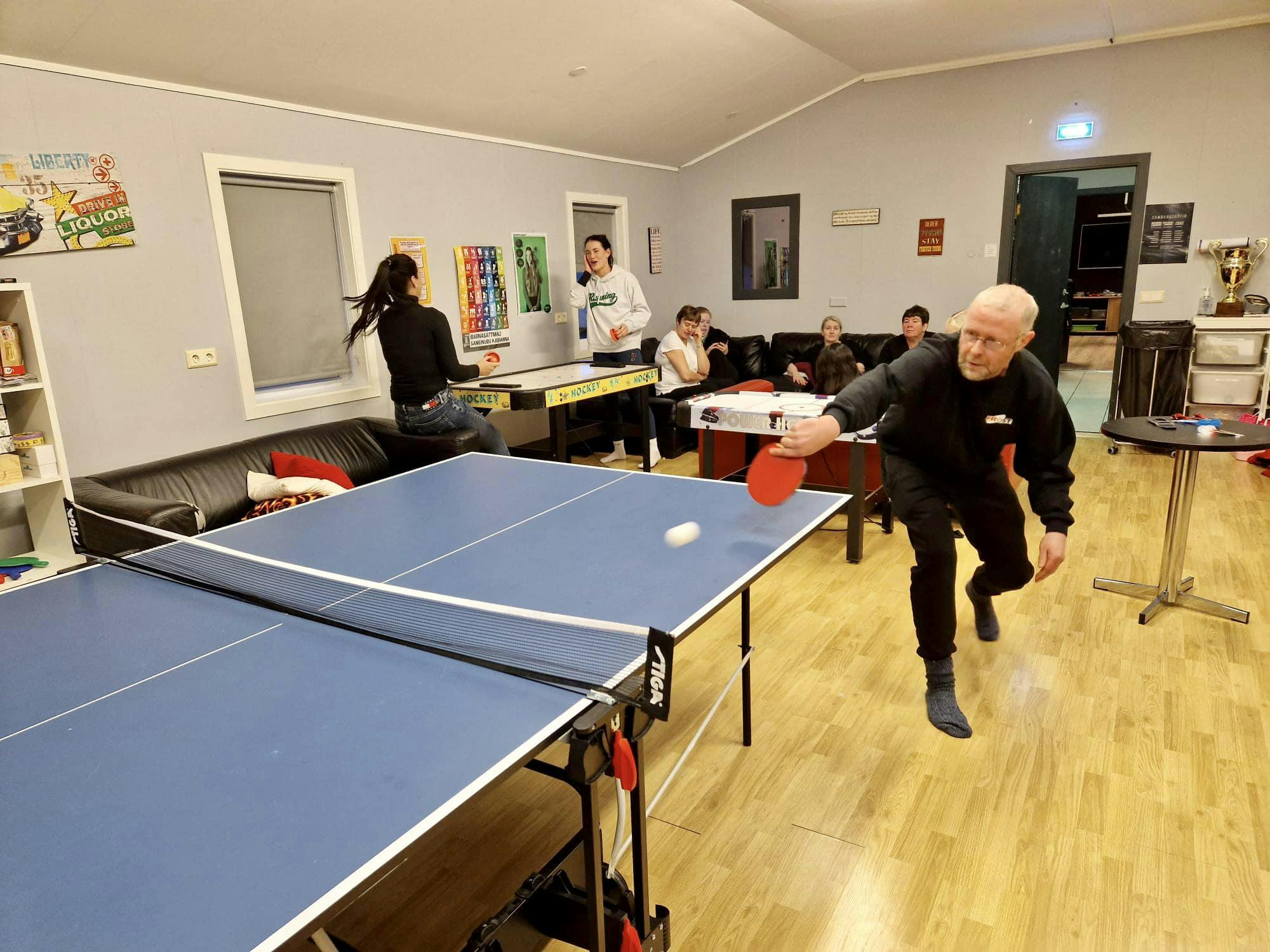
Health and a Healthy Lifestyle
Brim encourages employees to lead a healthy lifestyle. Employees are encouraged to use environmentally friendly means of transport and are offered a transport grant or annual bus pass. In addition, there are electric charging stations at the company’s offices. Sports grants are provided to those who exercise regularly, and all staff are encouraged to take part in national campaigns such as the Life Race (Lífshlaupið) and Cycling to Work (Hjólað í vinnuna).
Healthy food is offered at a reasonable price at the company’s operating units. In addition, doctors and nurses are present every other week at the Norðurgarður office, and all staff are offered an annual health check, counselling and flu shots.
Brim’s Health Days 2022 were held in autumn in Reykjavík and Vopnafjörður. Health Days offered a varied programme that dealt with factors such as exercise, diet, physical exertion and health status.
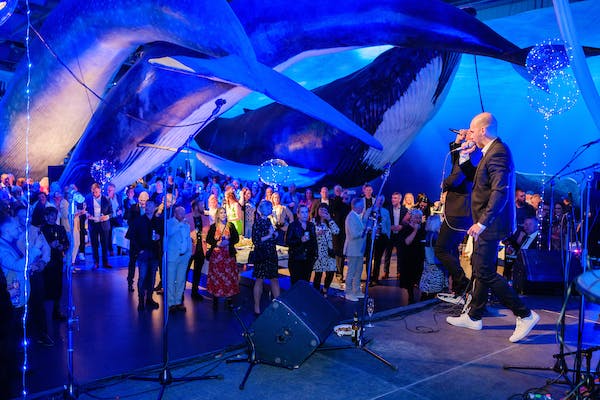
Staff Social Activities
Every year, Brim organises various events for the employees of the company and its subsidiaries, as well as events organised by the companies’ staff associations. Social activities were dormant at the beginning of 2022 due to COVID-19, but started at the beginning of summer.
Traditionally, the company’s annual celebration is held on the Sailors’ Day weekend, since all vessels are in port that weekend. This year, the company’s annual celebration was held at the Whale Museum, and a lot of effort was put into making it as grand as possible, as the annual celebration had been cancelled due to COVID-19 in the previous few years.
Employees’ families visit the Reykjavík Park and Zoo every year to have fun together. Brim then held a Texas Scramble golf tournament for employees at Seltjarnarnes Golf Course at the beginning of the summer. The tournament was attended by experienced golfers as well as beginners and had a mix of good and bad shots.
Brimgarður, Brim’s staff association in Reykjavík, held a happy day in March and invited members to play minigolf, which was well received. The company organised a trip to Sitges in Spain in October and the staff association in Vopnafjörður to Costa del Sol during the year. In December, Brim and Brimgarður hosted an elegant Christmas buffet with a concert element in Gamla Bíó. The year ended with a Christmas ball.
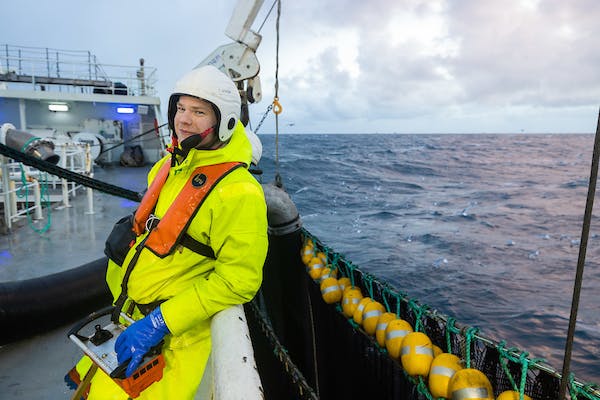
Social
Occupational Safety
Brim is extensively involved in accident prevention, as can be seen in both its internal work, i.e. education and prevention, and its support of robust accident prevention and rescue efforts both on land and sea. The organisation of safety issues is intended to increase the importance of the subject within the company and strengthen the efficiency of safety measures. Management is responsible for occupational safety.
Each and every employee is responsible for their own safety. One of the basic prerequisites of reducing the number of accidents is that everyone takes responsibility and that management, as well as employees, is determined to involve themselves in improving safety. The management is responsible for ensuring that all equipment is of the best quality and that the safety arrangements of the work areas and units for which they are responsible are up to date. The company relies on management to lead by good example and that they lead the occupational health and safety work of the company.
Safety Days are held annually, usually in autumn, but this time it was decided to change the timing, so the 2022 Safety Day was held on 5 January 2023.
One serious accident occurred during the year when a crew member was thrown overboard while fishing. The crew was able to quickly save the crew member, thanks to the crew’s good training, targeted response and collaboration. The incident was instructive and highlights the importance of regular training.
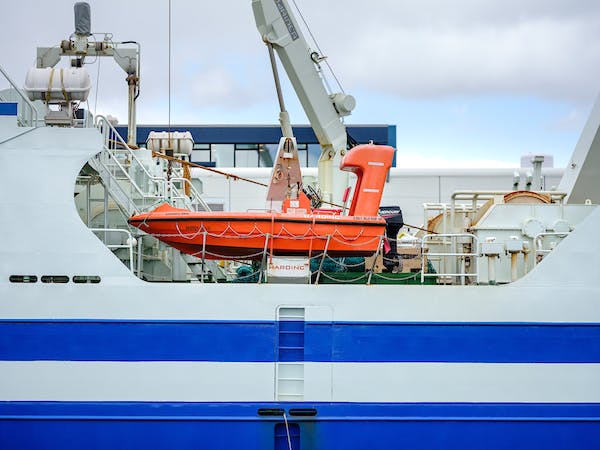
Social
Safety Committees and Representatives
Safety committees are active in Reykjavík, Vopnafjörður, Akranes and on the company’s vessels, and the Human Resources Department oversees and supervises the subject. This is in accordance with Regulation No. 920/2006 on the organisation and implementation of health and safety at work.
It is extremely important that employees comply with the safety rules in the workplace, participate in safety training and submit suggestions as to where improvements could be made.
Social
Accidents
Brim emphasises that all accidents are recorded, and the procedures and work processes are presented to employees. All lost-time and care accidents of employees on land are notified to the Administration of Occupational Safety and Health (Vinnueftirlit ríkisins), the Icelandic Health Insurance (Sjúkratryggingar Íslands) and the insurance company. Absence accidents of workers at sea are notified to the Icelandic Health Insurance, the Icelandic Marine Accident Investigation Board (Rannsóknarnefnd sjóslysa) and the insurance company.
Accidents are categorised as follows:
- Lost-time accidents are accidents that cause absences from work (work-related accidents), i.e. the day of the accident + the next day or longer.
- Care accidents are accidents where the injured party needs to seek assistance in a healthcare facility but comes back to work the next day.
- First aid accidents are minor accidents or accidents that require the use of first aid equipment (shallow cuts, etc.). The injured party does not take time off work.
- Leisure-time accidents are accidents that occur during the leisure time of employees or on the way to and from work.
A total of 25 accidents were reported during the year, which is 10 fewer than the year before, when there were 35. A total of 13 accidents at sea and 12 accidents on land were reported during the year. Brim has used its own accident registration system since 2017, but at the end of 2022 began implementing the Atvik accident registration system. A new system should facilitate the registration of accidents, tips, near misses and threats. The aim is to build an even better safety culture and encourage staff to take an active part in creating a working environment where everyone feels safe.
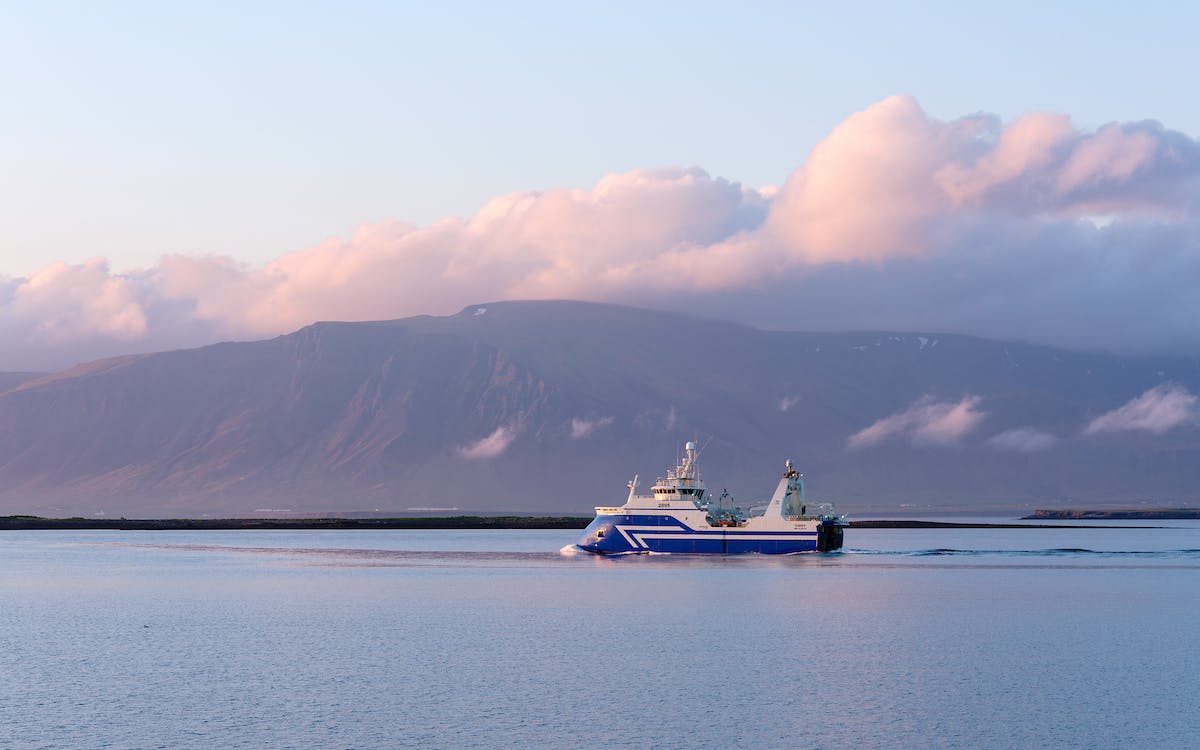
Fishing and Processing
Fishing, processing and product sales were generally successful during the year. The freezer trawler Sólborg RE-27 was purchased with a 5.84% catch share in capelin, 3.39% in mackerel, 11.42% in greater silver smelt and a 16.86% share in Iceland’s cod fishing quota in the Barents Sea. The vessel was not operated during the year.
At the end of the year, the following vessels were in operation at Brim: Kambur and Guðrún Þorkelsdóttir.
Further information on the company’s fleet can be found on the company’s website.
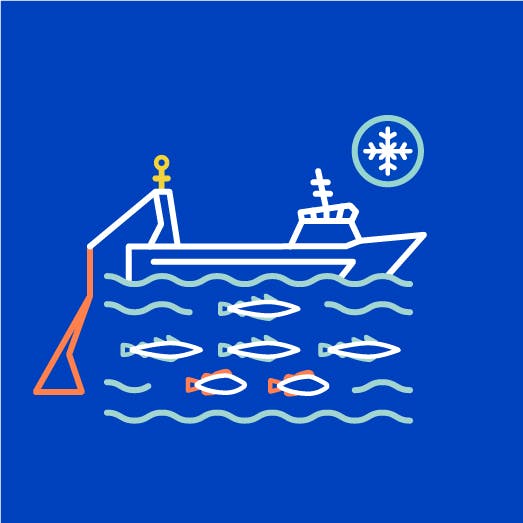
Freezer Trawlers
- Vigri RE
- Örfirisey RE
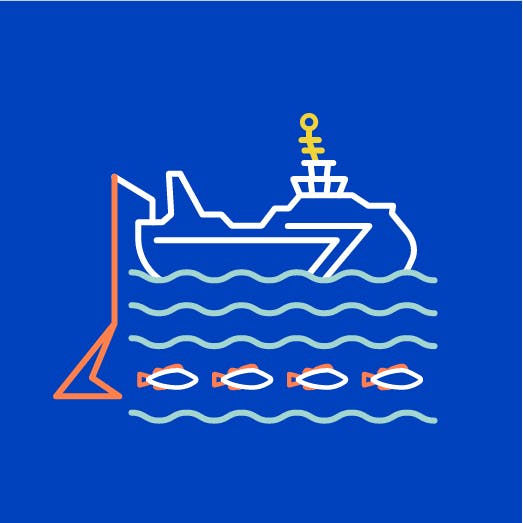
Wetfish Trawlers
- Akurey AK
- Helga María AK
- Viðey RE

Pelagic Vessels
- Venus NS
- Víkingur AK
- Svanur RE
- Guðrún Þorkelsdóttir SU
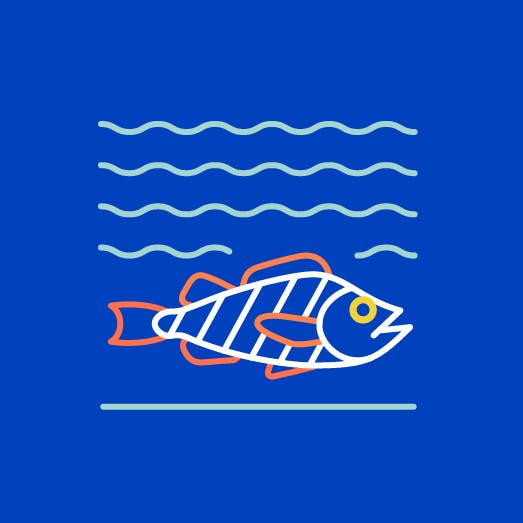
Liner
- Kristján HF
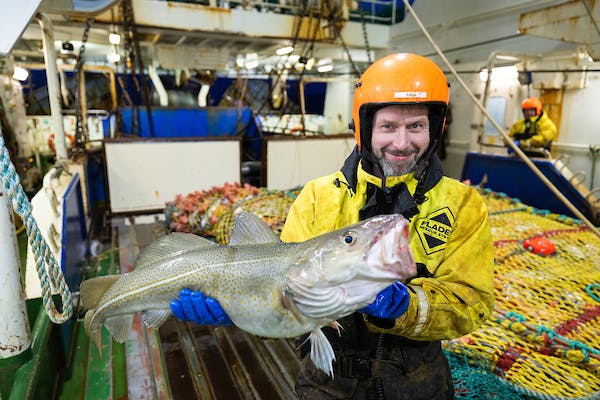
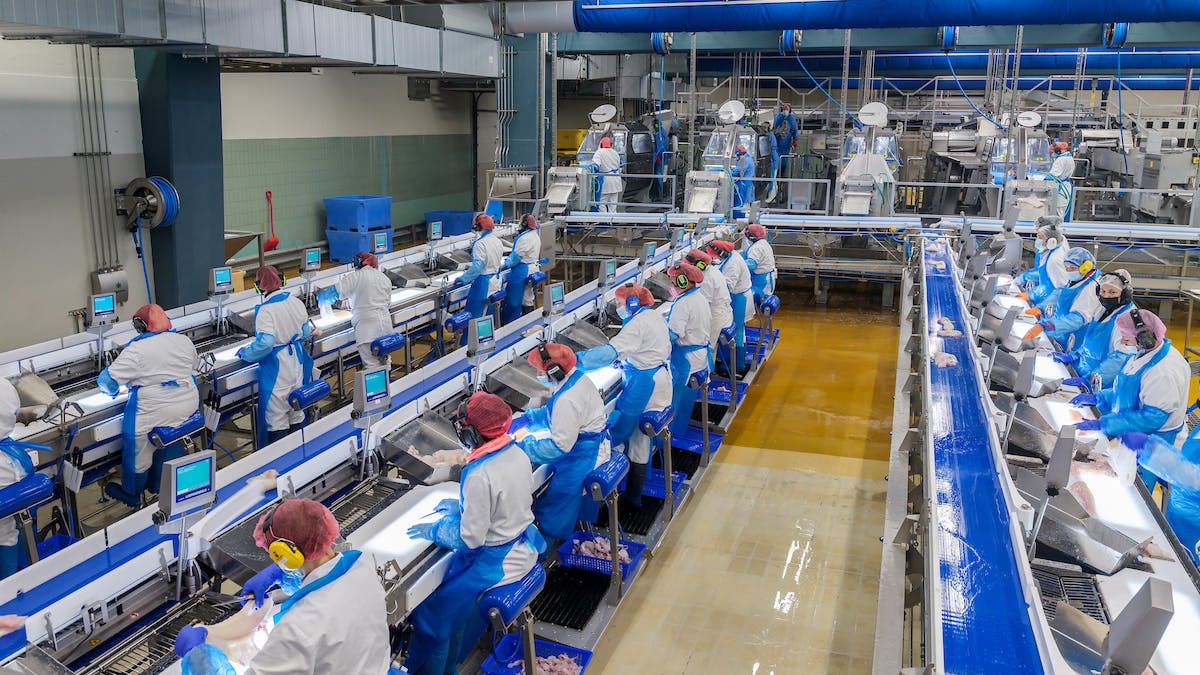
Fishing and Processing
Groundfish Department
There was a significant cut to Brim’s groundfish rights in the quota year 2022/2023, or about 6% for cod, 20% for redfish and 20% for deep-sea redfish. However, there was an increase in haddock by 23%. No catch quota was allocated based on fishing rights in the Barents Sea is Russian jurisdiction for 2022, and there is no prospect of one being allocated for 2023. Brim has a share there and would have been allocated 919 tonnes for 2022 and 1,180 tonnes for 2023.
Total groundfish fishing therefore decreased significantly between years and was 42,967 tonnes against 51,286 tonnes in 2021. Thereof, the total catch of trawlers in 2022 was 41,226 tonnes and was 49,557 tonnes in 2020. Catch per fishing day was the same as 2021, or 29.5 tonnes. The longliner Kristján caught 1,740 tonnes this year and 1,729 tonnes in 2021.
Despite the COVID-19 pandemic, the fishing of groundfish vessels went well. Extensive measures were taken to prevent COVID-19 infection on the trawlers, and these measures were generally successful. However, Örfirisey stopped for almost 3 weeks due to an infection that occurred on board in January. Then Vigri went on a 10-week layover at the end of the year, where the vessels’s refrigeration system was updated, the middle deck repaired and the vessel painted in Brim’s colours, along with other maintenance tasks. All wetfish vessels stopped for 10–20 days due to various maintenance tasks.
Catch for processing in Norðurgarður was 21,221 tonnes of cod, saithe and redfish, which is a little less than the previous year, when 22,262 tonnes were processed. The difference between years is due to a decrease in the issued catch quotas for redfish and cod. Processing went well, and investments in automation, which were made in the years 2020–2021, are fully operational with good results. Kambur processed 5,169 tonnes of cod and haddock, compared to 4,925 tonnes the previous year.
Catch and value of groundfish trawlers
| 2022 | 2021 | |||
|---|---|---|---|---|
Catch (tonnes) | Value (thousands of euros) | Catch (tonnes) | Value (thousands of euros) | |
Wetfish trawlers | 24,930 | 48,628 | 26,084 | 40,985 |
Akurey | 7,033 | 13,776 | 7,810 | 12,354 |
Viðey | 8,531 | 16,347 | 8,963 | 14,143 |
Helga María | 7,626 | 14,297 | 7,582 | 11,000 |
Kristján | 1,740 | 4,209 | 1,729 | 3,487 |
Freezer trawler | 18,037 | 57,628 | 25,202 | 60,255 |
Örfirisey | 9,280 | 32,084 | 9,385 | 23,476 |
Vigri | 8,757 | 25,593 | 9,706 | 23,508 |
Höfrungur III* | 0 | 0 | 6,111 | 13,271 |
Total | 42,966 | 106,256 | 51,286 | 101,239 |
*Höfrungur III, from January to August 2021
Groundfish catch for processing (tonnes)
| 2022 | 2021 | |||||
|---|---|---|---|---|---|---|
Norðurgarður | Kambur | Total | Norðurgarður | Kambur | Total | |
Cod | 10,835 | 4,128 | 14,963 | 11,623 | 3,883 | 15,506 |
Saithe | 6,101 | 57 | 6,158 | 5,274 | 5,274 | |
Redfish | 4,284 | 4,284 | 5,365 | 5,365 | ||
Haddock | 224 | 1000 | 1,224 | 1,042 | 1,042 | |
21,444 | 5,185 | 26,630 | 22,262 | 4,925 | 27,187 |
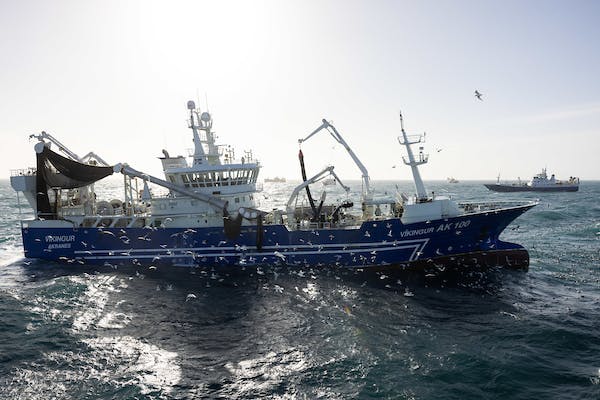
Fishing and Processing
Pelagic Department
The total catch of the pelagic vessels Venus, Víkingur and Svanur was 55 thousand tonnes higher in 2022 than in 2021, or 151 thousand tonnes, compared to 96 thousand tonnes the previous year. The main difference between years was a significant increase in capelin catch. The pelagic vessel Guðrún Þorkelsdóttir, in which Brim has a 50% share, took care of occasional fishing trips for the company as needed, mainly for capelin and blue whiting.
Capelin fishing began right at the beginning of the year due to a large capelin catch quota and lasted until the end of March. As before, the focus was on utilising the company’s quotas to create the maximum value, and this was successful. In mid-February, the discussion about the reduction of quotas following the new acoustic assessment of capelin started to become more prevalent, and it was decided to pause fishing to ensure that adequate quota would be available for the most valuable production. The reduction in quotas was ultimately insignificant, but the break in fishing, in addition to the bad weather during the season from the beginning to the end, meant that it was not possible to fully utilise the quotas this year. Blue whiting fishing took over in April and May and went very well. The vessels started fishing for mackerel in July and ended, as often before, in mid-September. There was co-operation between the company’s vessels when fishing for mackerel to keep sailing to a minimum and maximise the quality of products, and this was successful. Following the mackerel fishing, we started fishing from the Norwegian-Icelandic herring stock and finished at the end of October. The herring was within a 10-hour sailing distance from the company’s processing site in Vopnafjörður throughout the season, and the quality of the raw material was therefore at its best. A considerable amount of Icelandic herring was caught mixed with the Norwegian-Icelandic herring, so there was little quota left to fish west of the country. At the end of the year, Venus and Víkingur each went on fishing trips to catch the rest of the Icelandic herring quota and then each vessel took the first trip of the 2022/2023 capelin season.
In Akranes, capelin was received for reduction processing in the first three months of the year and capelin roe was processed from the end of February until the end of March.
In Vopnafjörður, the pelagic freezing was active for a large part of the year, as well as the production of fishmeal and fish oil. In January, the capelin mostly went to reduction due to uncertainty in the markets for frozen capelin products in Eastern Europe. That uncertainty did not diminish with Russia’s invasion of Ukraine. In February, capelin was frozen for the Asian market, and capelin roe was produced in March. During the spring months, lumpfish was received from small fishing boats, it was frozen and the roe was salted for further processing. In July, mackerel processing began and went well until mid-September, although there were some processing stoppages when fishing was slow. Processing was almost continuous from mid-September to the end of October, when fishing from the Norwegian-Icelandic herring stock ended. At the end of the year, the last tonnes of Icelandic herring were processed, in addition to which 1,500 tonnes of capelin were frozen for the Eastern European market.
The amount of frozen pelagic products changed little between years, as quotas for most species other than capelin were similar to the previous year. Freezing of capelin products was mostly limited to capelin roe and products for the Asian market due to market uncertainty and rising storage costs abroad. However, the production of fishmeal and fish oil increased by 75% between years, with the biggest difference in capelin products.
Catch and value of Pelagic Vessels
| 2022 | 2021 | |||
|---|---|---|---|---|
Catch (tonnes) | Value (thousands of euros) | Catch (tonnes) | Value (thousands of euros) | |
Venus | 58,145 | 19,646 | 45,783 | 15,140 |
Víkingur | 51,959 | 18,523 | 43,222 | 14,836 |
Svanur | 41,048 | 15,787 | 6,585 | 1,878 |
Total | 151,151 | 53,956 | 95,589 | 31,854 |
Frozen Pelagic Products (tonnes)
| 2022 | 2021 | |||||
|---|---|---|---|---|---|---|
Akranes | Vopnafjörður | Total | Akranes | Vopnafjörður | Total | |
Frozen capelin | 5,048 | 5,048 | 3,227 | 3,227 | ||
Capelin roe | 1,780 | 748 | 2,528 | 389 | 1,005 | 1,394 |
Herring | 8,102 | 8,102 | 11,461 | 11,461 | ||
Mackerel | 8,896 | 8,896 | 8,172 | 8,172 | ||
1,780 | 22,794 | 24,574 | 389 | 23,865 | 24,254 |
Catch Received in Fishmeal Plants (tonnes)
| 2022 | 2021 | |||||
|---|---|---|---|---|---|---|
Akranes | Vopnafjörður | Total | Akranes | Vopnafjörður | Total | |
Capelin | 38,966 | 42,841 | 81,807 | 6,397 | 19,564 | 25,961 |
Herring | 3,018 | 13,898 | 16,915 | 13,555 | 13,555 | |
Mackerel | 11,362 | 11,362 | 8.782 | 8.782 | ||
Blue Whiting | 39,633 | 39,633 | 32.213 | 32.213 | ||
Other | 2,234 | 76 | 2,310 | 3,169 | 69 | 3,238 |
Total | 44,217 | 107,811 | 152,028 | 9,566 | 74,183 | 83,749 |
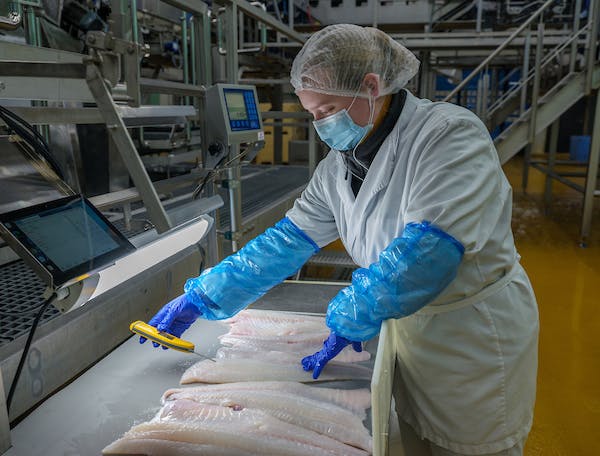
Quality
Quality Certifications
All Brim’s operating units on land and at sea are subject to the official monitoring of the Icelandic Food and Veterinary Authority (Matvælastofnun, MAST), which makes sure that laws and regulations are complied with. MAST’s monitoring operations are based on inspections, which in some cases are carried out without any notice.
The company’s operations in the processing plants in Reykjavík and Vopnafjörður are certified in accordance with the IFS standard (International Featured Standard). This is an internationally recognised standard and one of the most used in the field of food safety, along with ISO and BRC. These main standards of food safety are co-ordinated under the banner of the Global Food Safety Initiative (GFSI). The activities of Vignir G. Jónsson and Brim’s fish processing plant in Norðurgarður are audited by the FDA (Food and Drug Administration in the USA). All operating units have the MSC (Marine Stewardship Council) traceability certification, and the company uses the IRF (Iceland Responsible Fisheries) certification for the company’s fishing.
The fishmeal and oil plant in Akranes and in Vopnafjörður are certified according to the FEMAS standard (Feed Materials Assurance Scheme). FEMAS is an international feed safety standard for products produced for animal feed, and the plants in Akranes and Vopnafjörður were both audited during the year.
The company’s certified quality systems measures, among other things, customer satisfaction. The procedure provides for the assessment reaching customers representing at least 80% of the company’s turnover. This assessment is performed on a yearly basis.
There were no recalls during the year 2022, neither due to labelling nor for other reasons, and no serious deviations from the company’s rules regarding disclosure or labelling of the company’s products were documented.
Highest Score in IFS Audit
During the year, an audit was carried out according to the IFS standard of both the pelagic freezing plant at Vopnafjörður and the groundfish processing plant at Norðurgarður. Both operating units received a “higher level” inspection, which is the highest rating given.
Traceability
Brim’s fishing operations rely solely on wild fish stock, and the company’s products consist, in all cases, of pure and naturally wholesome products and marine fisheries. Product traceability is an important part of food production, and the food and feed safety system of Brim is based on being able to trace the product from its origins all the way to the customer. Detailed information on catches is recorded, such as fishing areas, fishing gear, the composition of the catch, volumes, etc. The origin of the raw material in processing is recorded, and information on the origin of the product is provided to the buyer. In addition, all information on the end destination of all products is maintained. Thus, all products are traceable from fishing to the buyer. This traceability is tested on a regular basis by the company’s internal controls as well as by external audits of the systems of the company, including in audits relating to certifications of origin.
The products of the company are in all cases labelled in accordance with rules on the labelling of marine products. This means that it is always clear what species of fish and fishing area is involved, as well as what type of fishing gear was used.
Marketing
Marketing
Sales companies owned by Brim are mostly responsible for the sale of the company’s products, but in addition, Brim employs three sales managers. Icelandic Japan, Icelandic China and Icelandic Hong Kong, which are owned by Brim, handle sales of the company’s products in Asia. Iceland Pelagic, in which Brim owns 33%, handles sales and distribution to the Eastern European market, which consists mostly of frozen pelagic product. Brim’s sales managers sell fresh and frozen products in Western Europe and the US. Sales of fishmeal and fish oil products are entirely handled by the employees of Brim’s pelagic department.
Sales of pelagic fish products were successful during the year, despite the uncertainty in the main markets for frozen pelagic products in Eastern Europe following Russia’s invasion of Ukraine. Sales to Ukraine continue, although to a lesser extent than before, and other markets have not yielded much. The prices of most products have remained fairly stable. Sales of fishmeal and fish oil have been very successful, and the prices of fishmeal and fish oil are at an all-time high. This can mainly be attributed to price increases in commodity markets.
Demand for most frozen sea products exceeded production from the beginning of the year through the middle of the year. Then sales began to slow down and tension arose in the markets, due to, among other things, rising energy prices and insecurity in energy and economic matters. Prices were at an all-time high in almost all species except redfish. Sales of fresh products went well during the year, and the prices of cod and saithe were high throughout the year, but redfish also strengthened with time. Market conditions for frozen products have changed so that the HORECA (Hotel – Restaurant – Catering) markets have grown stronger after the easing of the COVID-19 restrictions on gathering. On the other hand, demand for the retail market has calmed down. Nevertheless, prices have increased and sales have been successful.
The transport of goods generally went well, but transport costs have also increased, not least onward transport by land in Europe.
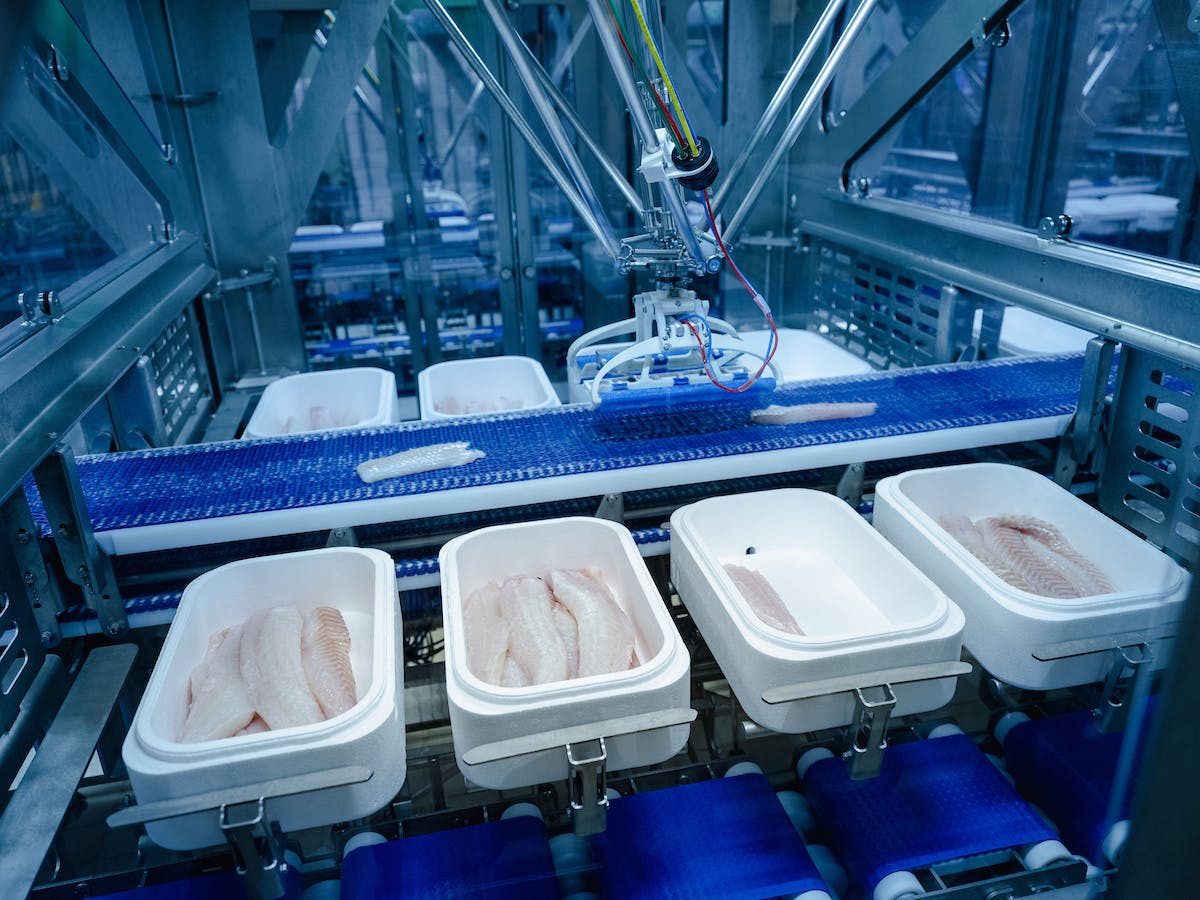
Innovation
Brim Is a Key Participant in Innovation Week
Brim was among the sponsors of Innovation Week in 2022 and offered, among other things, a visit to the company’s processing plant in Norðurgarður, in co-operation with Marel. The processing plant was renewed in 2020, and high-tech equipment from Marel is an important part of it, i.a. with the aim of increasing the utilisation of raw materials and automation in the processing.
During Innovation Week, the focus was on climate-related innovation. In recent years, Brim has worked on various projects that add value and reduce greenhouse gas emissions. These projects have been part of the company’s environmental and innovation plan called “Clean Value Chain of Fisheries”, which has been recognised by Rannís as a development project.
Innovation
Collaboration on Environmental and Climate Issues
Environmental and climate issues are prominent in society, and many people do important work in that area, e.g. preparing action plans for energy transition and waste issues. Collaboration between companies and public bodies is the basis for success in this field, and Brim participated in a variety of work related to the strategy of environmental and climate issues in the year 2022. This includes the preparation of a guide for the fisheries industry in climate issues, under the auspices of SFS. The Director of Innovation and Climate Affairs was a member of the working group of the Minister of Environment, Energy and Climate on the role of manufacturers in a circular economy, and Brim’s staff has also provided information on the possibilities for energy transition in connection with the action plan for a fossil fuel-free Iceland in 2040, to name a few.
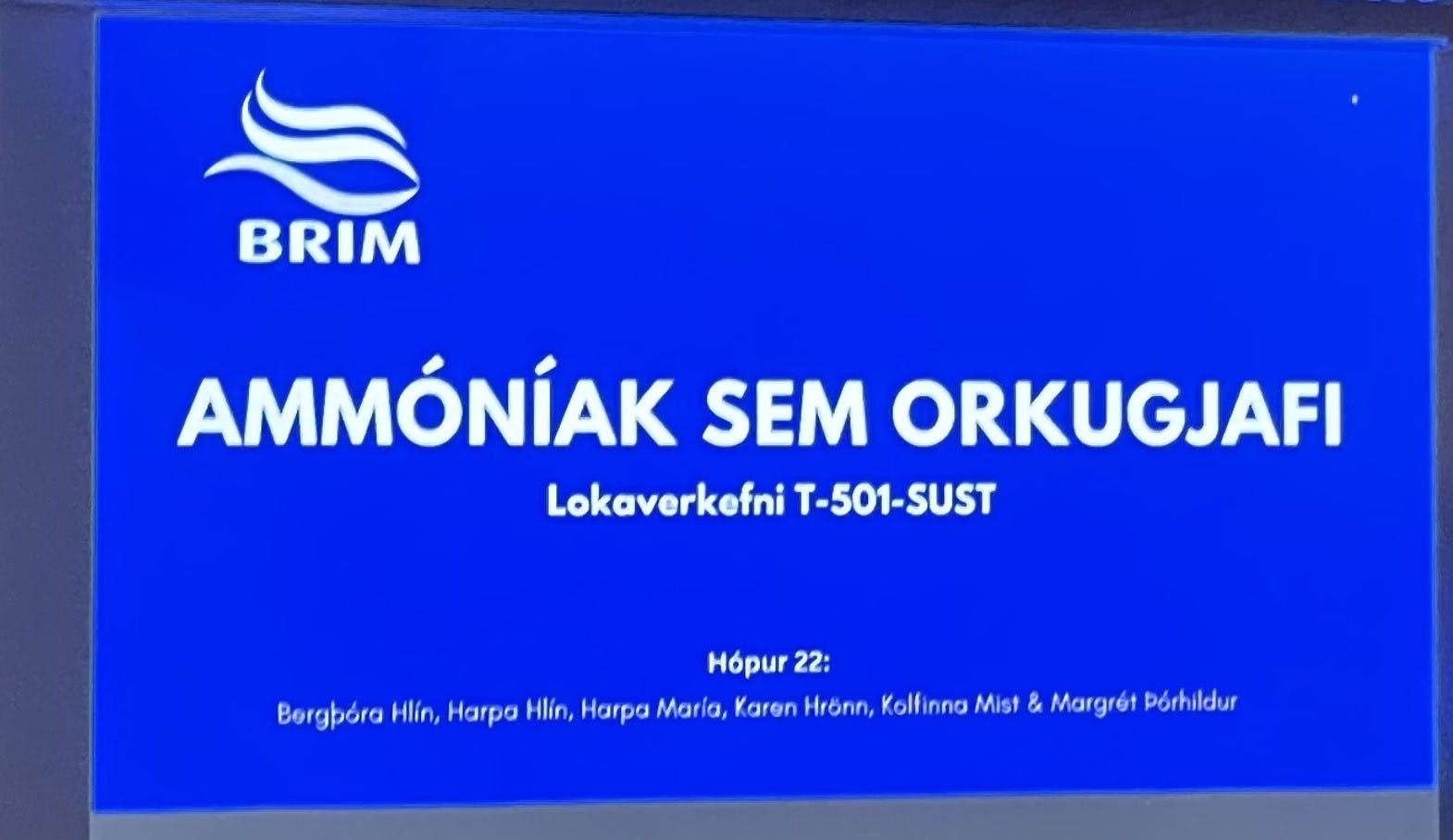
Innovation
Students at Reykjavík University Analyse Energy Issues
A dynamic group of students at UR completed their final project in the course Sustainability, which is taught in the third year of engineering in UR. The students are Bergþóra Hlín Sigurðardóttir, Harpa Hlín Ólafsdóttir, Harpa María Friðgeirsdóttir, Karen Hrönn Sævarsdóttir, Kolfinna Mist Rúnarsdóttir and Margrét Þórhildur Maríudóttir. Their project aimed to find a new energy source for Brim’s vessels.
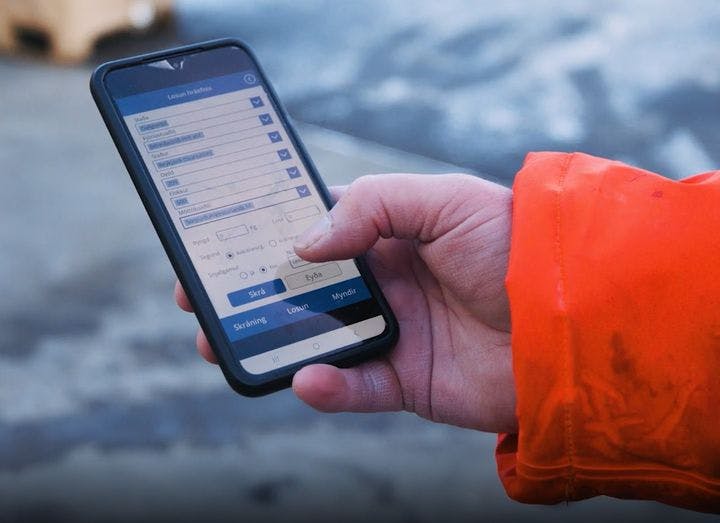
Innovation
Electronic Registrations Increase Overview
Brim has focused on electronic registration of various data in recent years. Examples include records of waste and its fate. Likewise, inputs have increasingly been ordered electronically; this applies e.g. to fuel and supplies for vessels. The size classification of fish in the catch is also managed electronically. Electronic registrations are important in order to have an overview of various aspects of the operation at all times, and they also provide opportunities for improvement projects of various kinds and the provision of information within and outside of Brim. In the coming years, the aim is to further increase the share of electronic external management in Brim’s supply chain and environmental accounting.
Electronic registrations are processed in various ways, e.g. in the form of summaries and reports that are accessible to staff and are in some cases displayed on smart screens and in apps. Brim has also collaborated with the Marine Research Institute, the Directorate of Fisheries, the Ministry of Food and the consulting company Intellecta on the use of the company’s data for improvements in marine research and monitoring of the use of fish stocks off Iceland. Last but not least, Brim has had extensive collaboration with universities, institutions and companies on the utilisation of data. In many cases, such collaboration is carried out in connection with Master’s or PhD projects and thus supports the creation of knowledge in a broader context.
Innovation
Experimental Processing of Blue Whiting
Blue whiting (Micromesistius poutassou) is a white fish in the codfish family. In the last ten years, the catch in the North Atlantic has fluctuated from 600 thousand tonnes to 1.8 million tonnes, and Icelandic pelagic vessels catch about 16% of the total catch. Icelanders caught a lot of blue whiting in Icelandic jurisdiction in previous years, but in recent years, it has mostly been caught around the Faroe Islands at the time of year when the fishing is good and the cost of the fishing is the lowest.
Almost all the blue whiting that has been caught by Icelandic vessels has been used for the production of fishmeal. The same applies to most Norwegian and Faroese vessels. The fishing has taken place away from the main processing centres and at a time when the fish is unsuitable for processing for human consumption. In recent years, Icelandic vessels have noticed an increase in the amount of blue whiting in Icelandic jurisdiction in the autumn. Often this is large and beautiful blue whiting that should be well suited for processing. It was therefore decided to experiment with the processing of blue whiting for human consumption in the autumn of 2022. The experiment went well, and special emphasis was placed on cooling the catch. In the coming seasons, we are aiming for further experiments in this field, and perhaps land processing of blue whiting for human consumption has a future in Iceland.
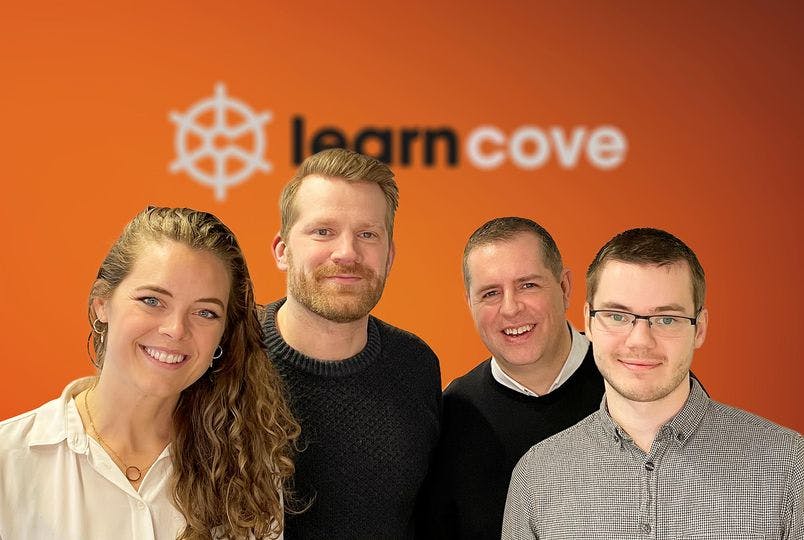
Innovation
New Software Useful for Training, Education and Research Projects
Brim has participated in the development of the LearnCove software, which aims to facilitate training and education among staff. One of the advantages of the software lies in the possibility to work with content in many languages, but Brim, in addition to offering Icelandic lessons for staff, has emphasised that the company has educational material available that is useful for employees who are of foreign origin. Brim also aims to use LearnCove in connection with collaborative projects with students in domestic and foreign universities.
Innovation
Testing New Technologies with Partners
For the last few months, Brim has been testing the Maritech Eye equipment. The equipment is intended to assess the condition of fish flesh, so that processing routes can be controlled so that maximum utilisation is achieved. This is a development project with the manufacturer of the equipment, which is the Norwegian company Maritech, and the equipment uses so-called spectroscopy technology.
Equipment from Baader that uses image analysis technology for the size classification of catches has also been tested. With such equipment, the aim is that information on the size classification of catches can be used in a more precise way than is currently the case for the organisation of demersal processing, and also for the development of knowledge about the marine ecosystem, in collaboration with the Maritime Research Institute.
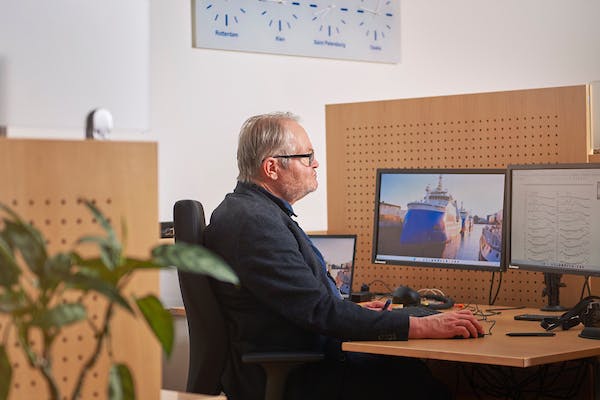
Innovation
Director of Fisheries Appointed to Brim
Dr. Kristján Þórarinsson was appointed Director of Fisheries at Brim in November.
Kristján is a research ecologist and has decades of experience in the field of fisheries and in the international fisheries sector. Kristján contributes to several multifaceted projects that the company is working on at any given time, including assessing the status of marine research of individual fish stocks. With Kristján’s appointment, Brim’s knowledge in the field of marine and ecological research is being strengthened and thus underpinning the company’s strategy of sustainable use of marine resources, minimising the carbon footprint and increasing value creation.
Brim - On to Something
On to Something is a start-up company that aims to develop a trading platform where leftover and side products are bought and sold, possibly even with raw materials that few have thought of using and are considered worthless today. Entrepreneurs Sara Jónsdóttir and María Kristín Jónsdóttir are responsible for the project, and they have collaborated with Brim on the use of leftover textile materials to replace imported machine rags in Brim’s vessels.
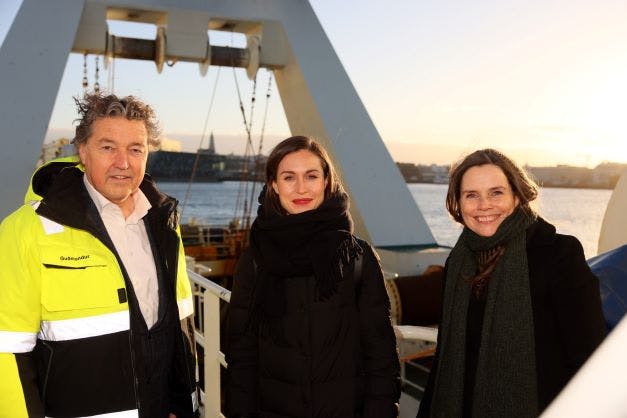
Operations and Innovation Within Brim Presented Widely
Brim’s staff focuses on promoting the company’s operations in various ways, i.a. by receiving a large number of visitors at our operating units. Katrín Jakobsdóttir and Sanna Marin, the Prime Ministers of Iceland and Finland, were among the visitors to Norðurgarður in November this year. Guðmundur Kristjánsson, CEO of Brim, welcomed them and gave a brief introduction to the company and the people who work there. The company’s emphasis on sustainable development, which integrates reliable and profitable operations, sustainable use of resources and actions to reduce the ecological footprint, and a growing emphasis on reliable communications with the community, was presented. The same focus areas were presented to Guðni Th. Jóhannesson, the President of Iceland, who visited Brim in Vopnafjörður in connection with his official visit there, as well as to a group of members of the American Congress who visited Breið Developmental in Akranes.

There were numerous other visitors to Brim’s operation sites, for example engineering students from the University of Reykjavík and the University of Iceland, MBA students from the Rotterdam School of Management, students from Vopnafjörður Primary School who worked on their prize project in the First Lego League, Iceland Sustainable Fisheries, buyers of marine products and working groups of Auðlindin okkar.
The company’s operations are presented in a variety of ways, in addition to visits to operating sites. Quarterly accounts present the results of financial and environmental accounting, and participation in the Seafood Conference and other conferences, exhibitions, workshops and writing on the website aim to promote the company in a variety of ways and have a positive impact on the development of society.